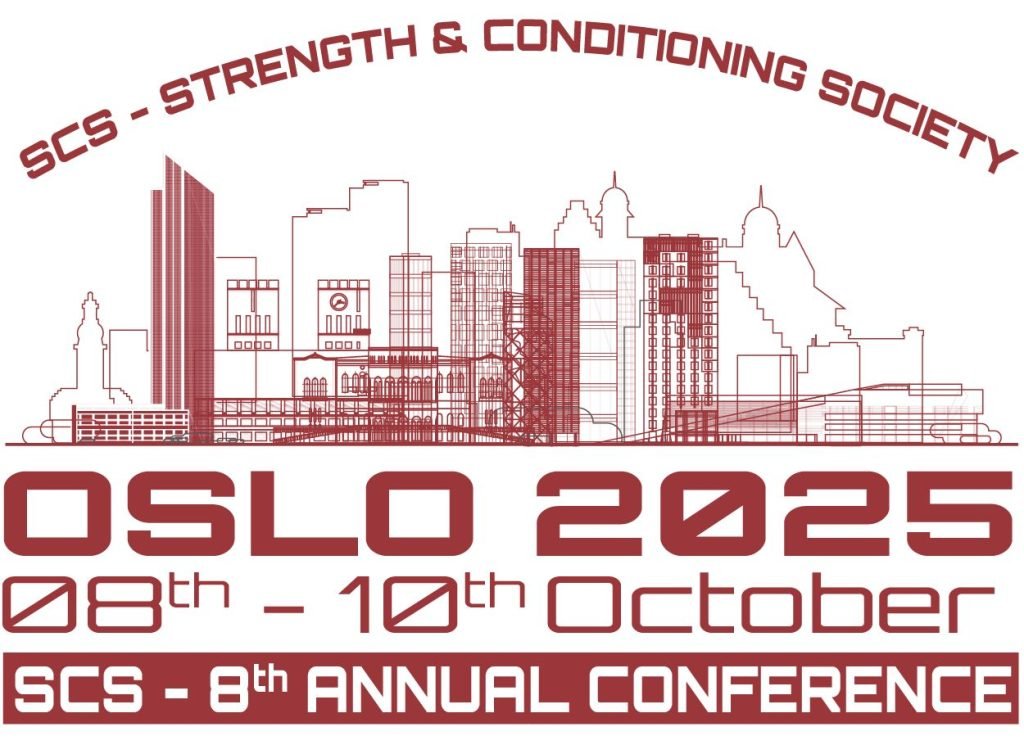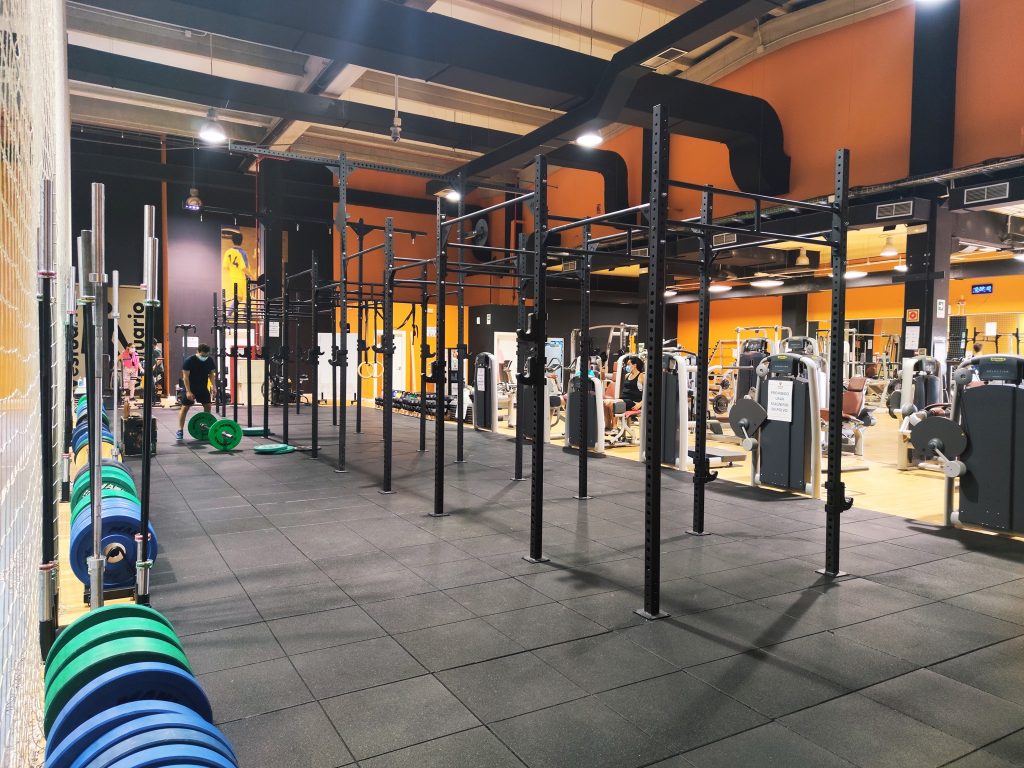WELCOME
On behalf of the Strength and Conditioning Society and the Norwegian School of Sport Sciences, it is a pleasure to invite you to the 8th annual Strength and Conditioning Conference to be held in Oslo in October 2025.
The Strength and Conditioning Conference is a scientific conference for research and innovation in strength training and conditioning, targeting both elite sports but also with a focus on the elderly, patients and general health. Participants include researchers, trainers, students, healthcare professionals and product developers.
The program will include novel research across different themes, showcasing science that has implications for teamsport and diverse groups of individuals. We invite you to submit your abstracts within strength and conditioning, both the well-known, but also new topics that may be of interest to the conference audience.
There will be a social program that makes it possible to see Oslo city center and its beautiful surrounding scenery at this time of year.
The conference will be held at Norwegian School of Sport Sciences which is one of Europe’s finest sports research and education campus, located at Sognsvann, 15 minutes by subway to the city center of Oslo.
Welcome to this scientifically and socially rewarding, memorable and enjoyable experience. We look forward seeing you in Oslo in October.
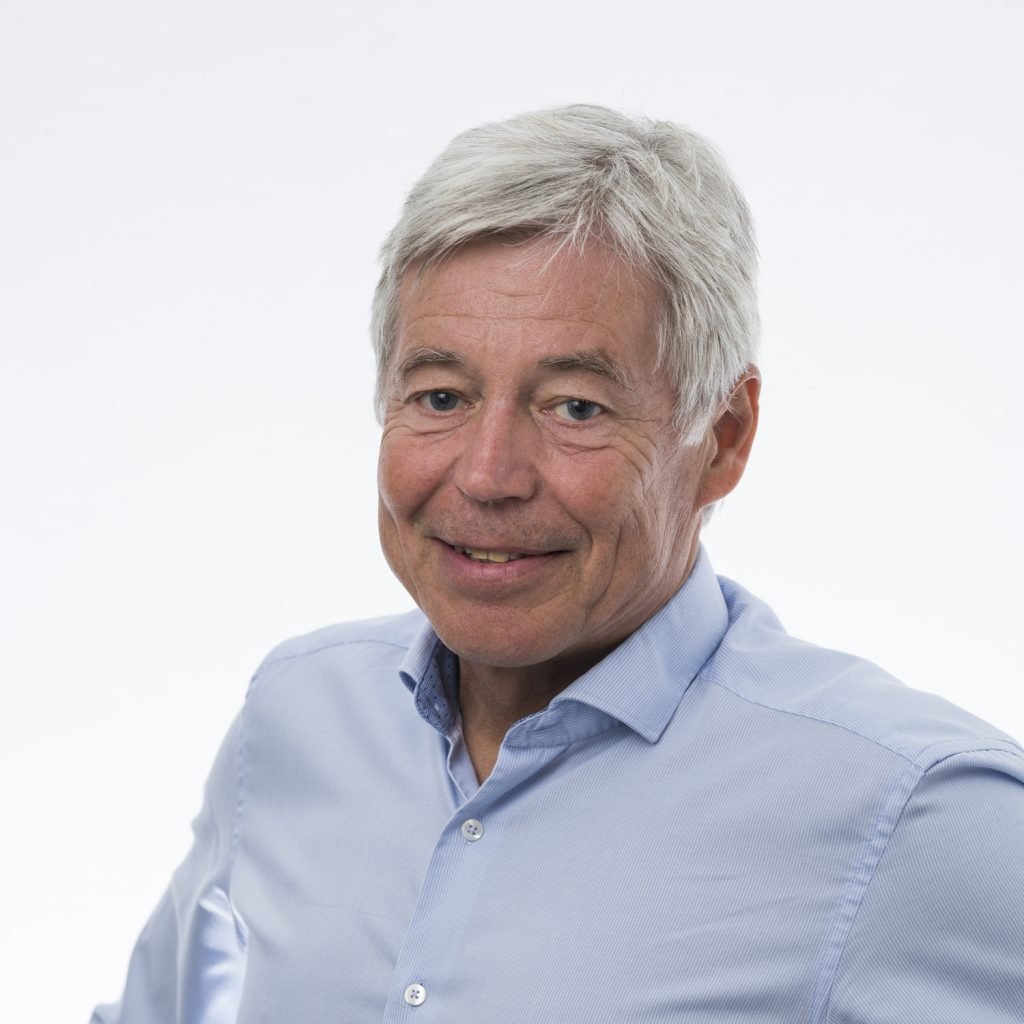
KLAVS MADSEN
- Organizing Committee President
- Norwegian School of Sport Sciences
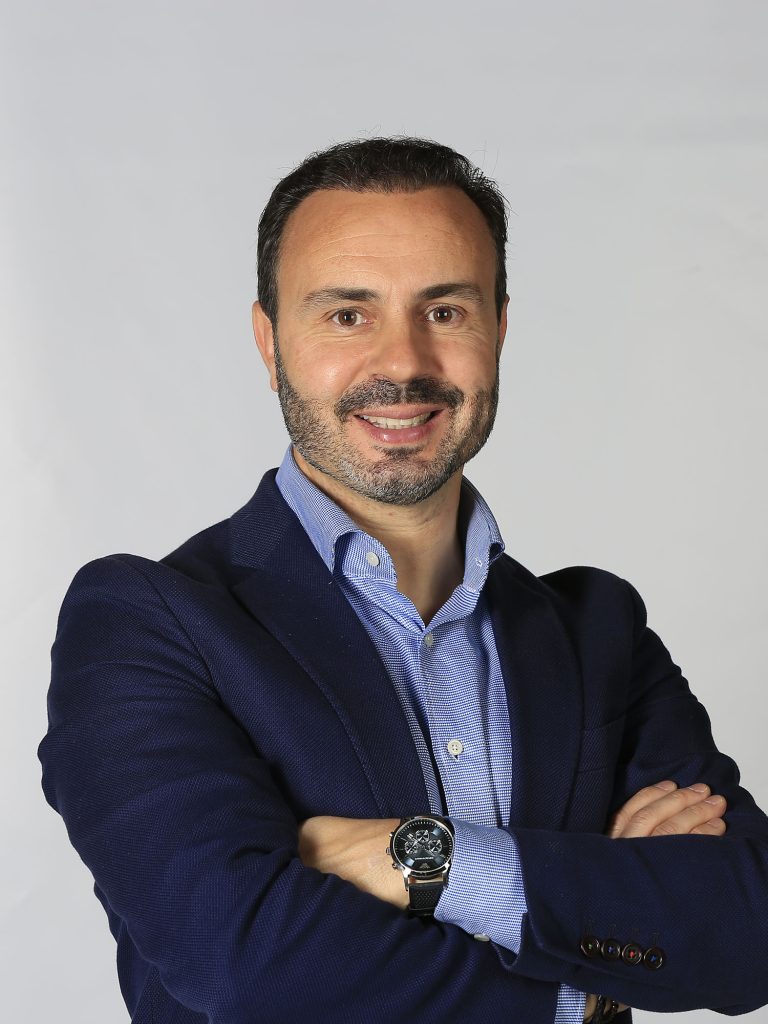
PEDRO E. ALCARAZ
- President
- Strength and Conditioning Society
ABOUT SCS
NETWORK FOR SCIENTIFIC RESEARCH
The SCS is a non-profit, international association devoted to fostering scientific research in the field of strength and conditioning. Through its sport sciences and clinical multi-disciplinary team of professionals, SCS aims to examine strength training and conditioning from a multifaceted perspective, including all physiological, biomechanical, psychological and epidemiological aspects. Thus, it strives to improve knowledge in the area of strength and conditioning and its broad application to sports performance, injury prevention, rehabilitation, and health improvement. It contributes to the dissemination of this knowledge to the scientific community and encourages initiatives aimed at increasing public awareness of findings in terms of strength and conditioning research and practice.
PLATFORM FOR S&C EDUCATION
The SCS promotes education in the field of strength and conditioning. Towards this aim, it organises education and certification courses, seminars and scientific congresses in order to foster excellence in the strength and conditioning community and provide internationally recognised certificates of respective education. It contributes to the publication of dedicated periodicals and scientific journals, to disseminate state-of-the-art research findings to its members and the wider scientific community.
Lorem ipsum dolor sit amet, consectetur adipiscing elit. Ut elit tellus, luctus nec ullamcorper mattis, pulvinar dapibus leo.
SPACE FOR PROFESSIONAL COLLABORATION
The SCS collaborates with, supports the work of, and promotes existing national strength and conditioning associations and organisations. The Society works in cooperation with various public and private health institutions, and sport clubs of different countries. It further favours contacts across its members to establish joint educational standards and promote collaborative research efforts in the field of strength and conditioning.
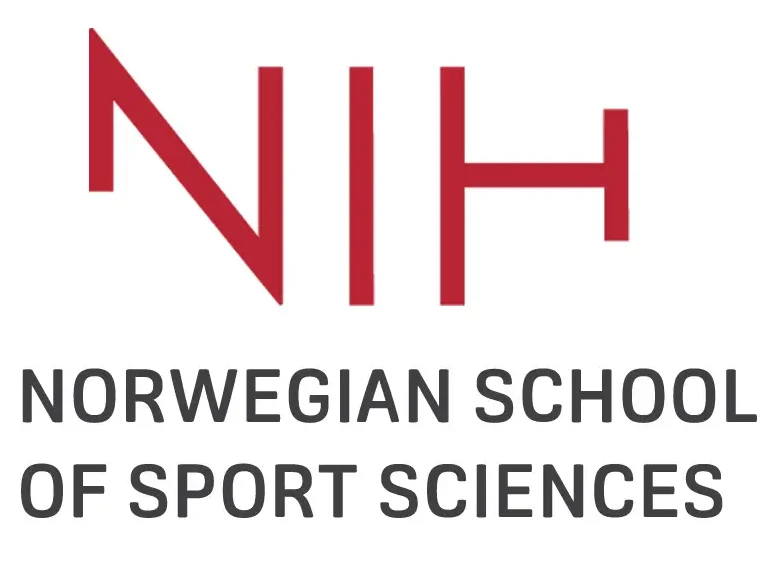
ABOUT NIH
ABOUT
Norwegian School of Sport Sciences is one of Europe’s finest sports education campus.
There are 4 Sport Science Departments with more than 100 researchers, 11 Bachelor and Master programs, and a PhD school with 65 PhD students.
All buildings and sports facilities are located on one Campus including lecture halls, group rooms, meeting rooms and cafeteria. Just outside campus there is great opportunities for recreational activities with Sognsvann lake and Nordmarka forest with walking, biking and running trails.
The institution is located by Sognsvann where the subway is right on the doorstep and15 minutes away from the city center of Oslo. The subway start early morning and run to late night, towards the city center every 15 minutes.
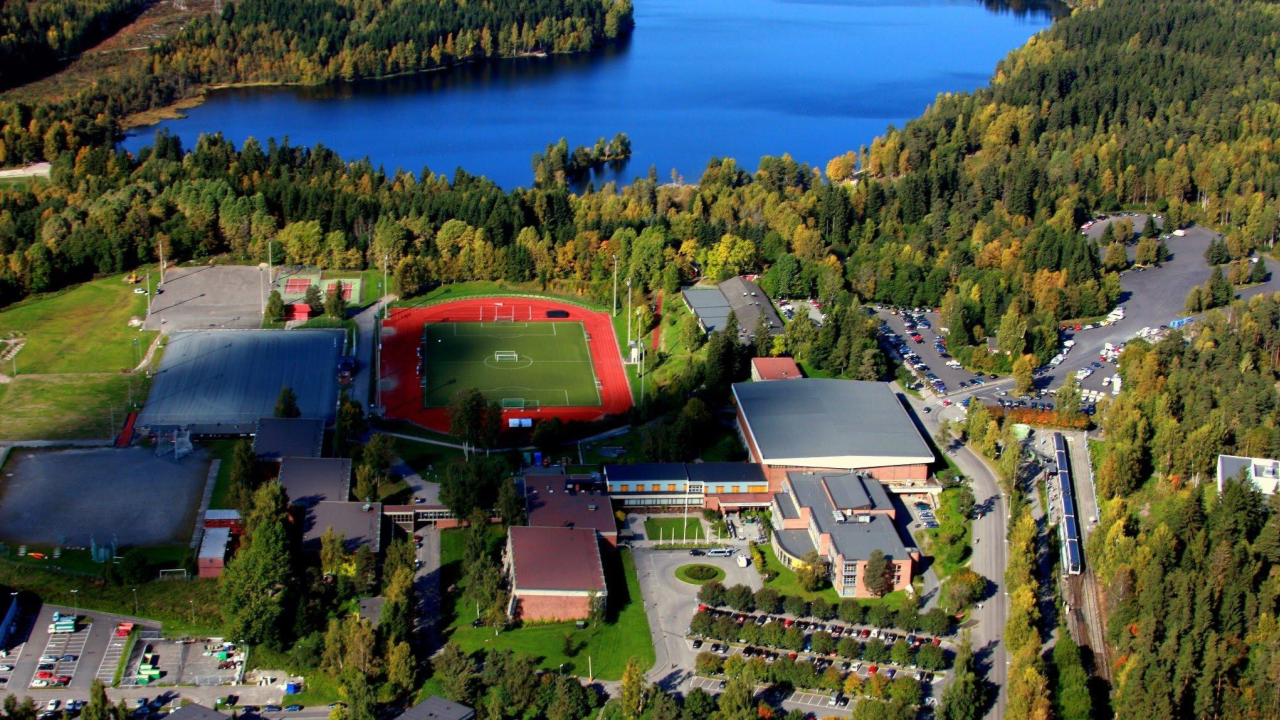
Fees
FEES
Super Early
Registration
Up to 31st
May 2025
Early
Registration
1st June to July 31st 2025
Registration on Location
After 31st July 2025
SCS/NIH members or certified
200€
250€
300€
Non-members
250€
300€
350€
Students +
SCS member
100€
120€
150€
Students non-member
120€
140€
160€
SCS Affiliated Society/Association/Institution
220€
270€
320€
Accompanying person
120€
150€
200€
Banket dinner, Friday
75€
75€
75€
One day Ticket
120€
120€
120€
*Lunch, coffee and fruit all three conference days, and welcome party is included in the registration fee.
*Accompanying person have access to exhibitions, lunch and coffee, and welcome party.
*Banket dinner will be organized at the Conference Venue, Norwegian School of Sport Sciences. The fee includes a three-meal course and two drinks of own choice. It will be possible to buy drinks from a bar located nearby the ball room.
Registration
SCS / NIH members or certified
Students + SCS members
SCS Affiliated Society / Association / Institution
Students non-members
Accompanying persons
Non members
Congress venue
OSLO , NORWAY

Oslo, the capital of Norway with around 600,000 inhabitants, is a modern and diverse city where new neighborhoods emerge while older ones are revitalized and transformed. Compact and easy to navigate on foot, by bike, or by public transport, the city is surrounded by beaches, countryside, and towns along the Oslo Fjord, offering a rich blend of Scandinavian culture and endless opportunities for sports and recreation. Half of Oslo is covered by forests and parks, making it a green oasis, especially in autumn, and popular routes such as the Akers River trail lead past waterfalls, swimming and fishing spots, and rich plant and animal life. At the same time, the city boasts striking cultural landmarks including the Harbor Promenade, the MUNCH Museum, the Opera House, Akershus Fortress, and the National Museum at Aker Brygge, an area also famous for its wide selection of restaurants. With 14 Michelin stars across 11 restaurants in 2024, Oslo also stands out as a true culinary destination. The conference venue, the Norwegian School of Sport Sciences (NIH), is located at Sognsveien 220, easily accessible by the “Sognsvann” metro line, which runs every 15 minutes from the city center, stopping at Ullevål station near Thon Hotel, and arriving at its final stop—right outside NIH—in just 17–18 minutes from downtown or 7–8 minutes from Ullevål.
TRANSPORT
Airport - City center - Norwegian School of Sport Sciences
- 23 min train ride from Oslo airport on public transport.
- 20-minute ride by metro “T-bane – Sognsvann” from the Oslo city center.
- Download the Ruter public transport app.
There is both bus and trains from Oslo Airport, Gardermoen available. If you are staying at Ullevål Stadium the bus FB3 is most convenient and stops near the hotel.
The fastest way to the city center (and to the conference venue) is to take a train directly from the airport (leaves every 20 min) to Oslo Central Station. Then there is 5 min walk to the “T-bane” to SOGNSVANN (leaving every 15 min). The train stop at Ullevål Stadion 3 min walk to the Thon hotel. The train end station is Norwegian School of Sport Sciences – the conference venue.
Buy the train ticket at Oslo airport, VY – or download the Ruter app
Last bus from Oslo Airport Gardermoen to Ullevål Stadium is 2330 (FB3). Last train from Oslo Airport, Gardermoen to the city center is 2350.
Be aware that a taxi is quite expensive. If you consider a taxi, we recommend that you order the taxi at a fixed price in the airport lobby.
UCAM CAMPUS
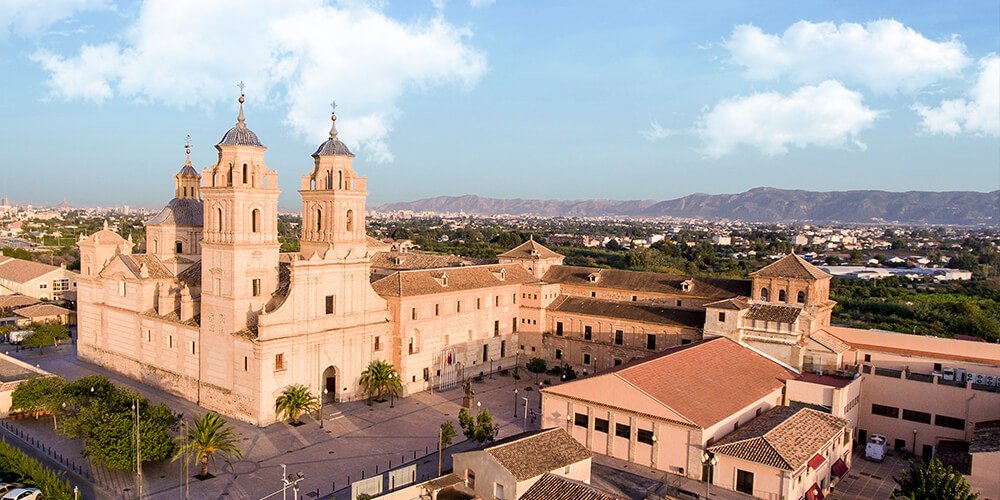
- Av. de los Jerónimos, 135, 30107 Guadalupe de Maciascoque, Murcia
UCAM HI TECH
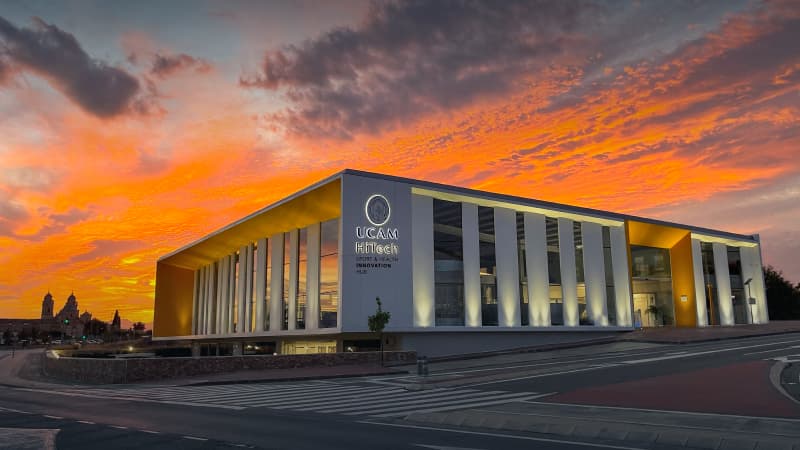
- Av. Andres Hernandez Ros, 1, 30107 Guadalupe de Maciascoque, Murcia
ACCOMODATION
As a tourist destination, Oslo has a wide range of hotels for all economic levels, from budget
hostels to luxury hotels. In addition, the Conference Organization has established agreements with
Thon hotel to offer the closest accommodation and all possible facilities.
Olympiatoppen Sportshotell
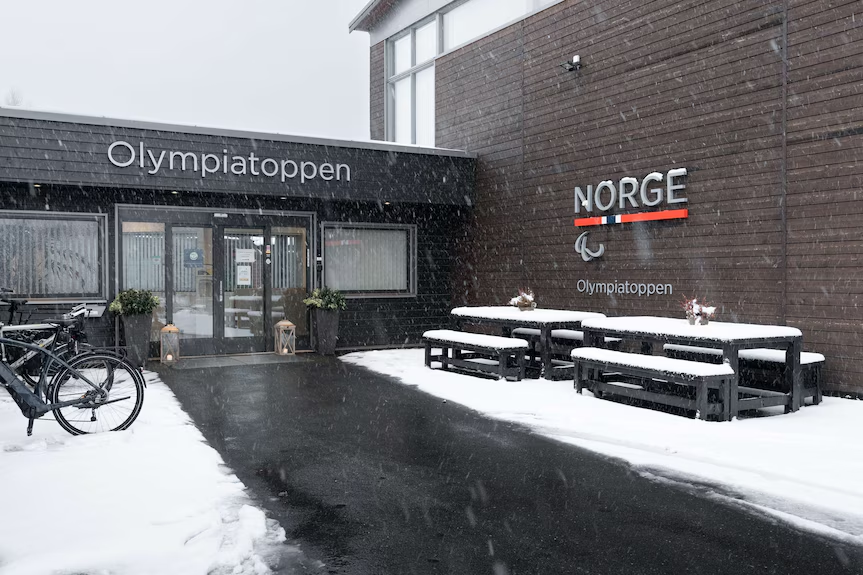
- Single room: NOK 1290 (~110€)
- Double room: NOK 1540 (~131€)
- Triple room: NOK 1790 (~153€)
- All prices include breakfast and access to training facilities at the Olympic training center.
Special Rates and Conditions 7th to 10th October 2025
Located just a 2-minute walk from the Norwegian Sports University and the conference venue, this hotel offers a convenient and comfortable stay.
For more information, please visit this website.
Booking Instructions
To request a booking, send an email to Christian Helgerud with the subject line:
Strength and Conditioning Conference
In your email, please include:
Preferred room type (single, double or Triple)
Your full name
Period of stay
Email address
Cell phone number
Radisson Blu Plaza Hotel
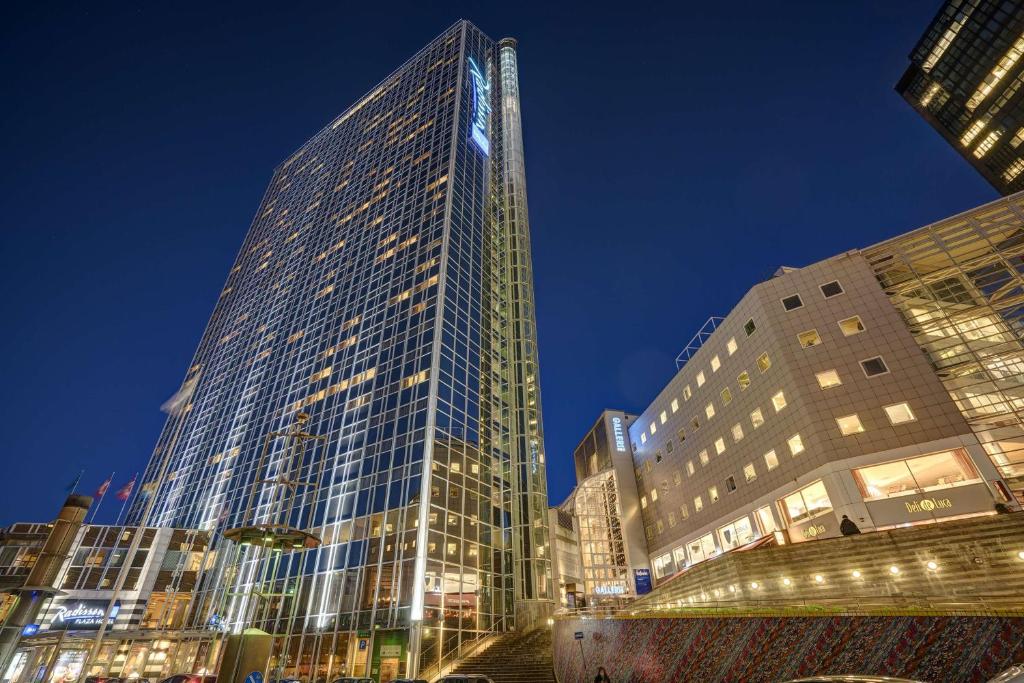
- Single room: NOK 2045 (~175€)
- Double room: NOK 2245 (~190€)
- All prices include breakfast buffet, Room amenities: kettle, safe, iron, and ironing board, complimentary access to the fitness room, sauna, and swimming pool, high-speed wireless internet
Special Rates and Conditions 7th to 10th October 2025
Located in the city center, 3 minutes walk from the Oslo Central Station and the subway to NIH.
For more information, please visit Radissonhotel blu oslo
To enjoy discounted hotel rates, book your room before September 2025. After this date, reservations must be made online at standard rates.
Important: When booking, please use the code NIH25 to access the special conference rates.
Payment and Cancellation Policies:
Booking Link:
Click here to book your room
Note: The link defaults to single occupancy. For double occupancy, adjust the number of adults in the search bar.
Payment:
Guests will pay directly upon departure.
Late Arrival Guarantee:
To secure your room for late arrival, please provide credit card details when booking.
- Unsecured bookings will be automatically canceled at 18:00.
Cancellation Policy:
- Rooms can be canceled free of charge until 18:00 on the day of arrival.
Thon Hotell Ullevål Stadion
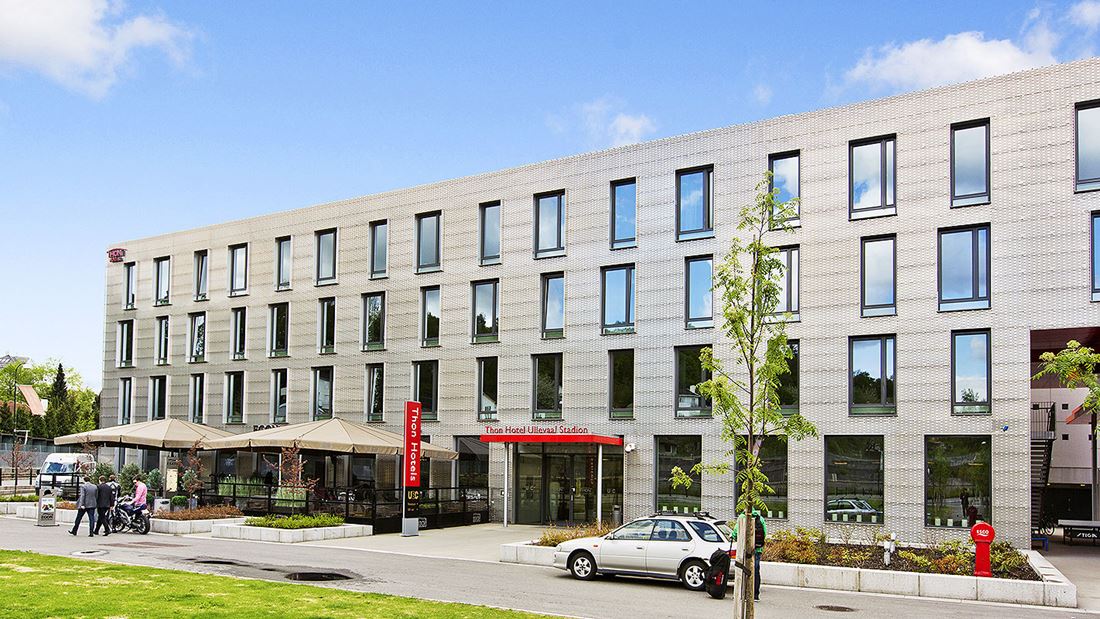
Prices for October 7th
- Single room: 1290 kr (~112€)
- Double room: 1590 kr (~137€)
Prices for October 8th
- Single room: 1310 kr (~114€)
- Double room: 1610 kr (~139€)
Prices for October 9th and 10th
- Single room: 1395 kr (~120€)
- Double room: 1695 kr (~146€)
- All prices include breakfast
Special Rates and Conditions 7th to 10th October 2025
The hotel is located at Ullevål Stadion, the home ground of the Norway national football team, and is a 3 minutes walk from the subway that will bring you to the conference center in 10 minutes.
For more information, please visit Thon hotel Ullevål Stadion
Other accommodation possibilities in Oslo:
Visit Accommodation in Oslo – Where to stay in Oslo
You can use websites such as Airbnb to find private accommodation. Make sure you have easy access to public transport!
International speakers
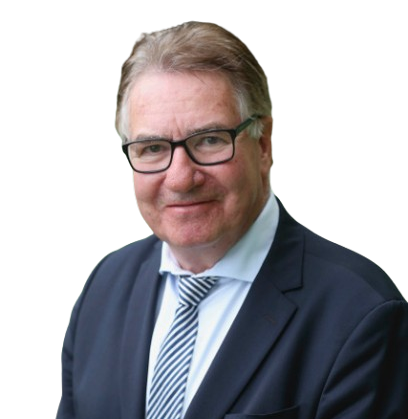
JAN EKSTRAND
Jan Ekstrand is a Professor, MD, and specialist in Orthopaedic Surgery. He earned his PhD in 1982 and was the first to demonstrate, through a randomized controlled trial (RCT), that sports injuries can be prevented.
From 2018 to 2020, he served as Chief Medical Officer at Aspetar Orthopaedic and Sports Medicine Hospital. Since 2000, he has been Professor of Sports Medicine at Linköping University, Sweden.
He led the UEFA Elite Club Injury Study from 2001 to 2023, establishing himself as a leading figure in sports injury research in professional football. Additionally, he served as team physician for the Swedish national football team in 120 international matches.
His career reflects a unique combination of clinical excellence, pioneering research, and leadership in sports medicine at the international level.
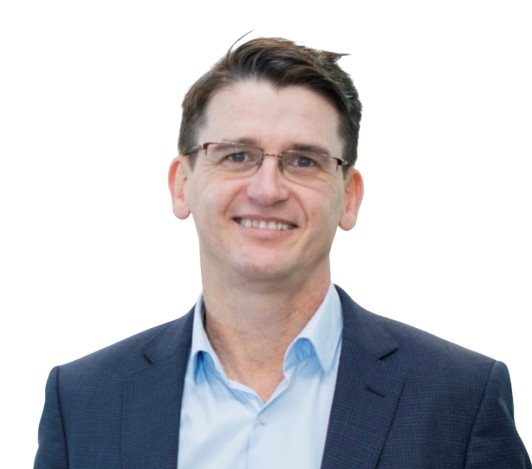
AARON COUTTS
Aaron Coutts is a distinguished professor in sport and exercise science. He is the Head of the School of Sport, Exercise and Rehabilitation. His research is focused around developing evidence-based methods to optimise training, health and performance of athletes. He has supervised more than 65 research students, published more than 250 scientific articles and 20 book chapters. Aaron also provides sport science advice to several top-level professional football clubs and sporting organizations.
Aaron has more than 25 year’s experience as sport scientist, working in the AFL, NRL and as a consultant to many leading sport organisations globally. He is a member of the International Advisory Board at the Nike Sport Research Laboratory. Aaron is also a director of Exercise and Sport Science Australia, and has been on the editorial boards of several leading international journals in this field.
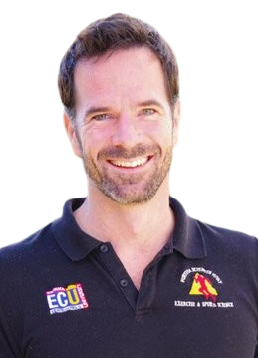
ANTHONY J. BLAZEVICH
Professor of Biomechanics in the School of Medical and Health Sciences, at Edith Cowan University, Perth, Australia. His role includes teaching on biomechanics and neurophysiology as well as leading research in areas such as sports biomechanics, neurophysiology, and strength & conditioning. He has authored over 200 scientific papers and is known for his expertise in exercise science and sports biomechanics. Board Member and Scientific Chair of Strength & Conditioning Society. Member of Exercise and Sports Science Australia. Member of the International Society of Biomechanics. Fellow of the European College of Sports Sciences. Member of Australian Strength & Conditioning Association.
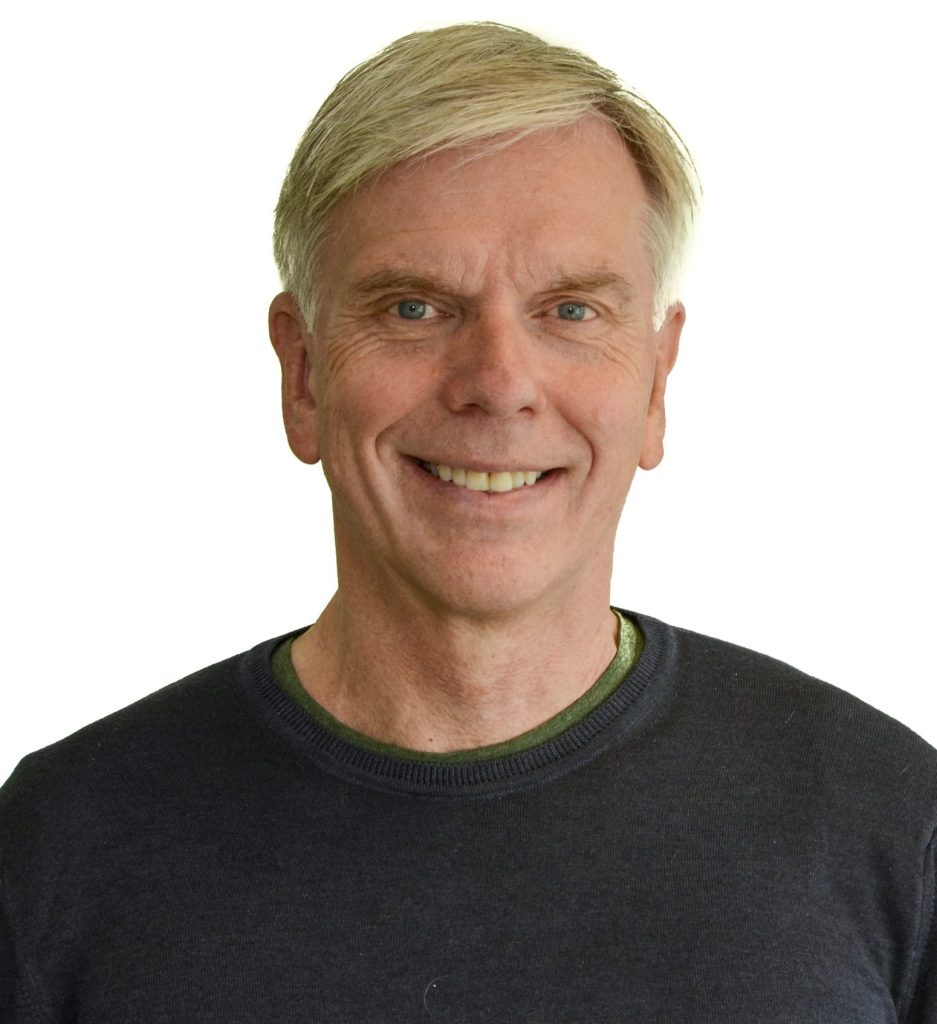
THOR EINAR ANDERSEN
Thor Einar Andersen is professor and head of the football research program at the Oslo Sports Trauma Research Center, the Norwegian School of Sport Sciences. He is a senior consultant specialist in Physical Medicine and Rehabilitation and an authorized Sports Medicine & Exercise Physician. He has a BA’s degree in physiotherapy and a master’s degree in health management. His main research area is football injury epidemiology, causes and injury prevention. From 2019 to 2021, he was Chief of Sports Medicine Department at Aspetar Orthopaedic and Sports Medicine Hospital. From 2020 to 2024 he was member of the FIFA Medical Scientific Advisory Board.
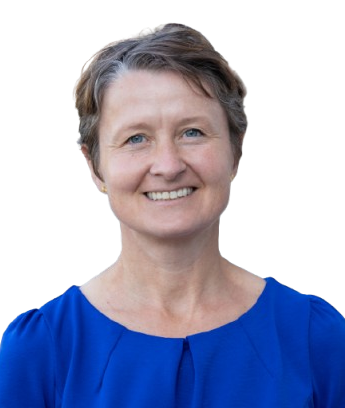
Mette Hansen
Dr. Mette Hansen is an Associate Professor at the Department of Public Health, Aarhus University, Denmark. Her research focuses on the interaction between female sex hormones and skeletal muscle metabolism, with particular emphasis on how endogenous and exogenous estrogens influence muscle adaptation to exercise, health outcomes, and physical performance. She has led over 14 externally funded research projects and has published more than 100 peer-reviewed papers, with an H-index of 37. Dr. Hansen is an experienced mentor, having supervised multiple PhD and postdoctoral fellows, and she actively collaborates internationally within networks focused on female athlete physiology and sports nutrition. MH’s contributions to female athlete research have earned her several awards and a nomination for the Minister of Culture’s Sport Award 2024.
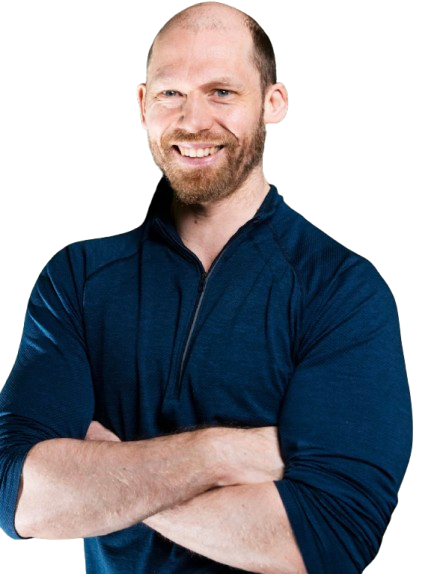
GøRAN PAULSEN
Dr. Gøran Paulsen is a Norwegian exercise physiologist and professor at the Norwegian School of Sport Sciences (NIH), affiliated with the Department of Physical Performance. He earned his PhD in exercise physiology, focusing on recovery and adaptation to exercise-induced muscle damage. His research emphasizes skeletal muscle physiology, strength training, and performance optimization. He has published over 140 scientific articles in these fields. Dr. Paulsen previously led the Department of Strength and Power at the Norwegian Olympic Training Center (2013–2019) and now serves as a consultant. He has also researched antioxidant supplementation’s interaction with training. His work bridges academic research and applied projects to enhance elite athletic performance.
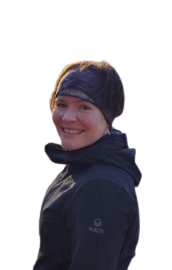
RITVA MIKKONEN
Dr. Ritva Mikkonen is a Senior Lecturer and Docent in Exercise Physiology at the University of Jyväskylä, Finland. She is Vice Director of the Sports Technology Unit at the Faculty of Sport and Health Sciences. Her research focuses on how hormones—such as menstrual cycle phases, contraceptives, and menstrual dysfunction—affect exercise responses and performance in female athletes. She also studies the impact of low energy availability and altitude exposure on health and athletic performance. Her PhD examined concurrent strength and endurance training in runners. Dr. Mikkonen has published research on the relationship between low energy availability, menstrual dysfunction, and bone health in female athletes. She contributes to international projects like Feminae, exploring hormonal effects on women’s sports performance. Her work bridges science and practice to advance female athlete health and performance. and implementing interventions that combine a nutritional-physical activity-medical approach.
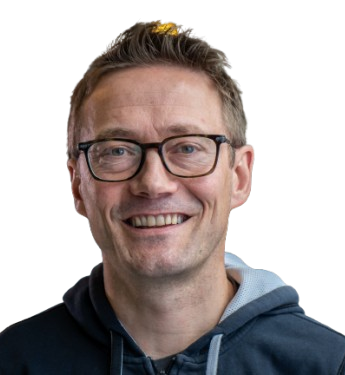
Bent Rønnestad
Dr. Bent R. Rønnestad is a professor at the Inland Norway University of Applied Sciences (INN University), specifically within the Section for Health and Exercise Physiology at the Faculty of Social and Health Sciences, located on the Lillehammer campus . He is a leading researcher in exercise physiology, with a particular focus on how strength and endurance training interact to influence athletic performance.
Dr. Rønnestad has authored over 160 peer-reviewed publications, garnering more than 8,000 citations. His h-index is 46, reflecting the significant impact of his work in the field . His research delves into areas such as muscle physiology, sports science, strength and conditioning, and rehabilitation. He has notably contributed to the understanding of concurrent training—the combination of strength and endurance training—and its effects on endurance sports performance .
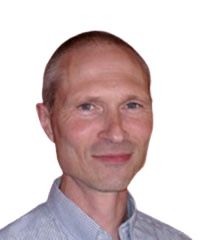
MAARTEN F. BOOBERT
Maarten Bobbert is associate professor at the Faculty of Human Movement Sciences of the VU University in Amsterdam, The Netherlands, where he completed his PhD project on muscle functioning and coordination in vertical jumping in 1988. He has taught courses on neurosciences, neuromusculoskeletal modeling and biophysics of locomotion, and among his research interests are muscle function, the design of musculoskeletal systems, and the organization of control. Maarten dedicates himself to unraveling the mechanisms that underly phenomena observed in human movement. For that purpose, he intertwines experiments on humans with simulations of movements using models of musculoskeletal systems that aim to capture the essence of anatomical and physiological properties. Whenever possible, he tries to translate the insights gained to sports practice, in order to help improve athletic performance. endurance sports performance .
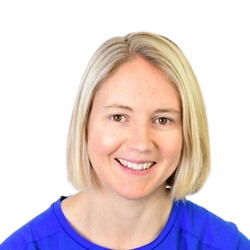
HANNAH MARGARET RICE
Hannah Margaret Rice is an Associate Professor in the Department of Physical Performance at the Norwegian School of Sport Sciences in Oslo, specializing in running biomechanics and the prevention of overuse injuries such as tibial and metatarsal stress fractures. She has published over 40 scientific articles, with her work cited more than 700 times, highlighting her impact in the field. Her recent research investigates the effects of running speed and slope on internal tibial loading, as well as how advanced footwear technology can reduce oxygen consumption and cumulative tibial load in recreational runners. She also serves as a reviewer for the European College of Sport Science and collaborates with international institutions such as the University of Exeter and Loughborough University on applied biomechanics projects. Her work integrates kinematic analysis and computational modeling to better understand biomechanical risk factors in runners.
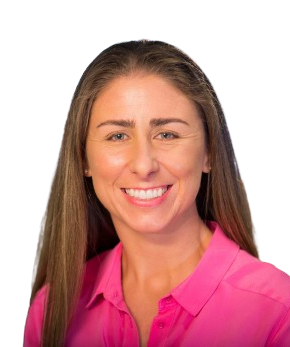
PRUE CORMIE
Associate Professor Prue Cormie is an accredited exercise physiologist whose research and clinical work focuses on the role of exercise in the management of cancer. She aims to enhance the lives of people with cancer through innovative research and effectively translating research into practice. Her track record includes over $10 million in competitive research grant funding, over 95 refereed publications, over 50 invited conference presentations and many invited seminar presentations including a TED talk. Prue has produced influential research exploring the efficacy of targeted exercise prescriptions in counteracting significant side effects of cancer and cancer treatments. Prue was the inaugural Chair of the Clinical Oncology Society of Australia Exercise Cancer Group and is the lead author on the COSA position statement on exercise in cancer care. She is involved in national and international consortiums and her work has been recognized through numerous awards. Prue is the founder of EX-MED Cancer a not-for-profit organisation that provides best practice exercise medicine services to people with cancer. A core component of Prue’s work is invested to translating research into practice for meaningful improvements in health care services for people with cancer.
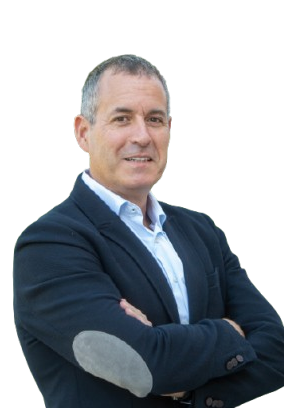
MIKEL IZQUIERDO
Mikel Izquierdo is a Full Professor of Sport Sciences in the Department of Health Sciences at the Public University of Navarra and Head of the E-FIT Research Unit at NAVARRABIOMED. He also teaches Sport Biomechanics at the Centre of Studies of the Spanish Olympic Committee. Between 2005 and 2010, he led the Government of Navarra’s Research, Studies and Sport Medicine Center, working with Olympic champions and top soccer teams like Liverpool and Barcelona. He is principal investigator of EU-funded projects on exercise and frailty, including VIVIFRAIL, MID-FRAIL, and DIABFRAIL-LATAM. Izquierdo collaborates with the WHO on global strategies for frailty and fall prevention. His research explores the effects of exercise across the lifespan and in conditions like diabetes, obesity, and heart failure. He focuses on neuromuscular biomechanics and strength training in both elite athletes and older adults. With over 547 publications (H-index 116) and more than 35 PhD students supervised, he is a leading figure in exercise science research.
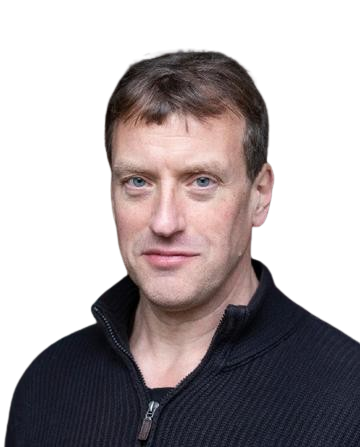
Mathias wernbom
Mathias is a researcher and university lecturer specializing in muscle and exercise physiology, with a focus on strength training and its effects on skeletal muscle and nervous system adaptations in different populations. His main research interest is blood-flow restricted resistance exercise (BFR-RE), which he has studied since 2003, making him an early contributor to this field. He has lectured on BFR-RE physiology and safety in Scandinavia and at international conferences like ICST 2012 and ECSS 2018. His research collaborations include institutions in Oslo, Odense, Aarhus, and Kristiansand. He also applies BFR-RE clinically to treat patients with musculoskeletal injuries, integrating research and practice. Another key interest is muscle damage and regeneration, including mechanisms in both skeletal and cardiac muscle. Recently, he has focused on understanding how muscles recover after atrophy, disease, stress, or injury. His work aims to improve knowledge of muscle health, repair, and function across diverse conditions.
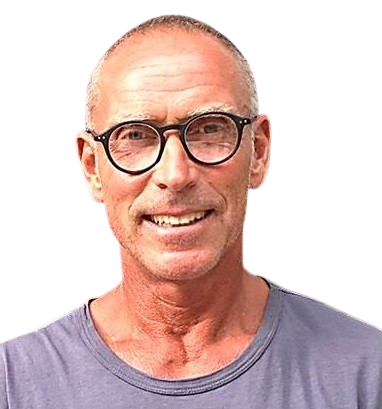
Per Aagaard
Per is a Professor of Biomechanics at the Department of Sports Science and Clinical Biomechanics, University of Southern Denmark, leading the Muscle Physiology and Biomechanics Research Unit. He holds a PhD in neurophysiology and an MSc in exercise physiology from the University of Copenhagen. His research focuses on neuromuscular adaptations to training and detraining, muscle morphology, balance, strength, injury prevention, and rehabilitation. He has published over 350 peer-reviewed articles and 360 conference abstracts. His work also explores ACL injury biomechanics, myogenic stem cell activation, and athletic performance across age groups. He has held visiting positions at UC Berkeley and collaborated with international institutions in Europe, North America, South America, and Australia. He has supervised 32 PhD students and over 300 master’s and bachelor’s theses. He serves as Associate Editor for Scandinavian Journal of Medicine and Science in Sports and is on the ECSS Scientific Committee.
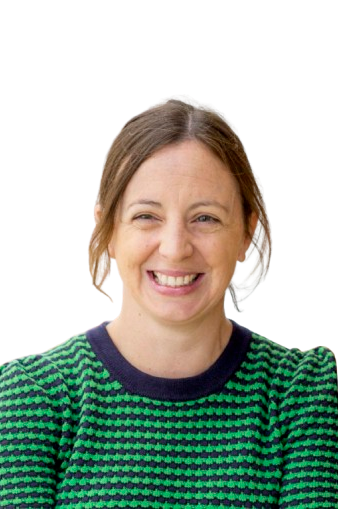
Kirsty Elliott
Kirsty works at the Institute of Sport at Manchester Metropolitan University as a Professor of Female Endocrinology and Exercise Physiology. In addition to her research on female athletes, which includes the menstrual cycle, hormonal contraceptives, and menstrual dysfunction, her work in recent years has examined pregnancy and postpartum considerations in a variety of populations including servicewomen (i.e., military personnel), athletes, and women with obesity. She is also passionate about raising the quality of research and practice in women’s sport and has presented and written about methodological standards on numerous occasions. She has co-authored numerous peer-reviewed journal articles, book chapters, expert and consensus statements, and editorials on/for sportswomen. In addition, she works with many organisations such as the United Kingdom Sports Institute, the European Club Association, UEFA, FIFPRO, Manchester Thunder Netball Team, and Arsenal Women’s Football Team and is part of several special interest groups and advisory boards related to female athletes.

Live Luteberget
Live S. Luteberget is an Associate Professor at the Norwegian School of Sport Sciences, specializing in training and match load monitoring in team sports. She holds a PhD, MSc, and BSc in Sport Sciences from the same institution and has developed recognized expertise in wearable technology, positioning systems, and inertial measurement units for performance analysis. Her research focuses on external load, recovery, and performance in team sports, and she has published extensively in leading journals, with her work widely cited in the fields of sports performance, health, and injury prevention.
WORKSHOP speakers

Melissa Prieto
Melissa Prieto: Melissa Prieto is a Colombian strength and conditioning coach specialising in combat sports. In 2024, she was honoured as the Female Coach of the Year by the Strength and Conditioning Society (SCS) during its 7th Annual Conference held at the Universidad Católica San Antonio de Murcia (UCAM)
With over a decade of experience, Prieto has worked with professional athletes across various disciplines, including MMA, football (MLS), and tennis . Her training approach integrates scientific methodologies with psychological insights to optimise athlete performance.
Currently based in Guadalajara, Mexico, she continues to contribute significantly to the evolution of training methodologies in MMA and other sports.
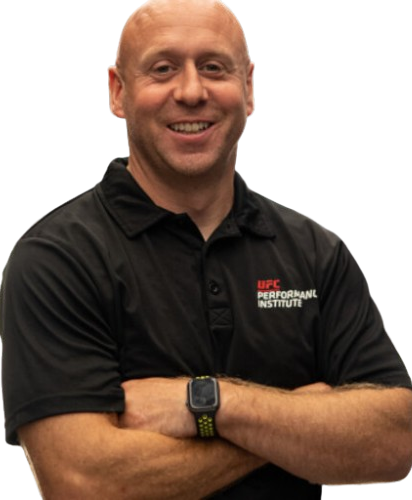
DUNCAN FRENCH
Dr. Duncan French is a leading high-performance expert and Vice President of Performance at the UFC Performance Institute. With over 25 years in elite sport, he has worked across 40+ Olympic and professional sports, including roles with Team GB and Newcastle United FC. He is a respected researcher with 60+ scientific publications and co-editor of the NSCA’s Essentials of Sport Science. At the UFC, he leads global performance strategy for hundreds of fighters, applying cutting-edge science to athlete development.
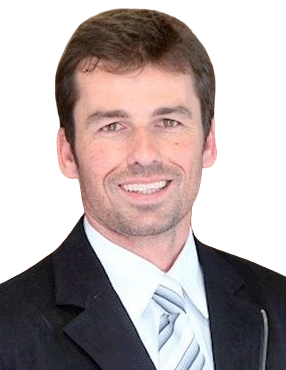
EDUARDO LUSA CADORE
Eduardo Lusa Cadore is a Brazilian exercise scientist and strength and conditioning expert, currently serving as a professor at the Federal University of Rio Grande do Sul (UFRGS) in Porto Alegre, Brazil . He holds dual PhDs in Human Movement Sciences and Health Sciences. Dr. Cadore’s research focuses on aging, resistance training, and neuromuscular adaptations, with over 300 scientific publications and more than 11,000 citations. He has contributed to international guidelines, including the NSCA’s position statement on resistance training for older adults. He is also a faculty member at the Strength & Conditioning Society (SCS), where he teaches courses on power training and performance assessment.
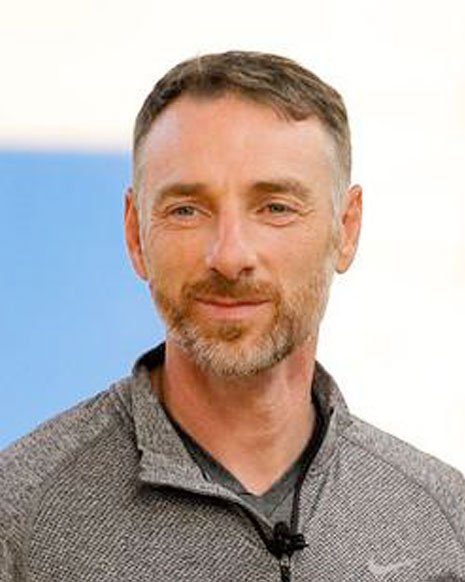
FRANCESCO CUZZOLIN
Francesco Cuzzolin is a renowned Italian strength and conditioning coach, currently Head of Performance at EuroLeague club Olimpia Milano. With decades of experience, he has worked with top basketball teams and is known for his expertise in athlete development and injury prevention. He teaches at the University of Udine and UCAM in Spain, and contributes to research in sports science. Cuzzolin is also a consultant for Technogym and the Euroleague Players Association, and an educator in high-performance training programs.
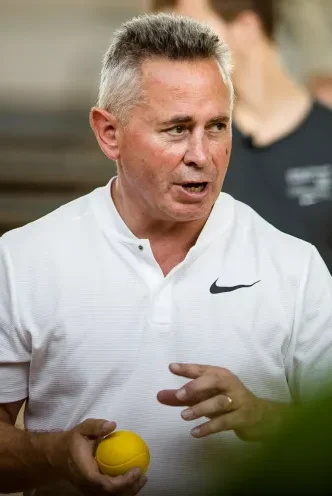
IAN JEFFREYS
Ian Jeffreys is a globally recognized strength and conditioning coach, educator, and author, renowned for his expertise in speed and agility development. A former professional rugby player, he played at the highest level for 15 years. He is the founder of All-Pro Performance and serves as a visiting professor at Reykjavik University. Jeffreys is also the Academic Director at Setanta College in Ireland. His innovative “Gamespeed” system and RAMP warm-up protocols have been widely adopted by coaches and organizations worldwide. Jeffreys holds esteemed credentials, including CSCSD, NSCA-CPTD, RSCC*E, and FNSCA. He was elected President of the National Strength and Conditioning Association (NSCA) in July 2024. Additionally, he is a founding member and honorary fellow of the UK Strength and Conditioning Association.
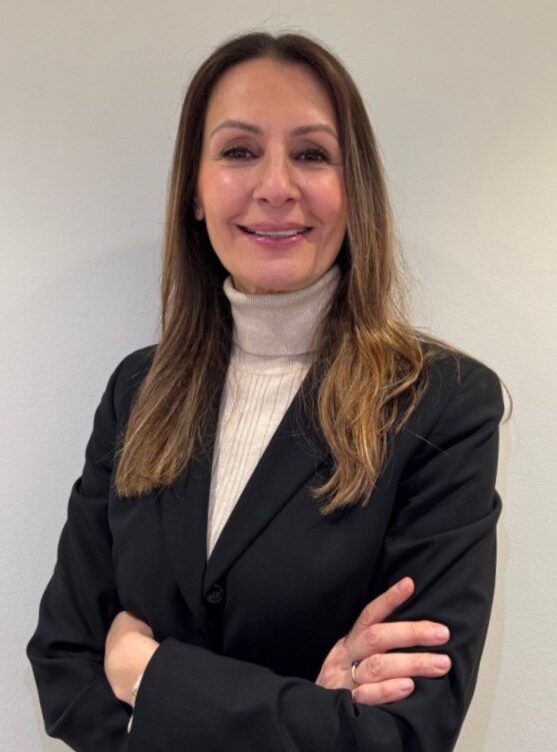
Teresa pellicer
Dr. Teresa Pellicer is the Biotechnology Manager at HealthTech BioActives (HTBA), a Spanish company specializing in natural flavonoids and active vitamin B₁₂.
She led a clinical study on MecobalActive®, a bioactive methylcobalamin, which showed enhanced physical performance and reduced fatigue in healthy amateur cyclists.
The study also reported faster cognitive response times compared to a placebo after just three days of supplementation.
Pellicer presented these findings at Vitafoods Europe 2025 in Barcelona.
She has a strong background in microbiology and bioprocesses, linked to the Institut Químic de Sarrià (IQS).
Her work focuses on natural, bioactive ingredients and sustainable biotechnology innovations.
She collaborates on research involving fermentation processes for vitamin B₁₂ production.
Pellicer is active in both scientific and industry circles, promoting evidence-based nutraceuticals.
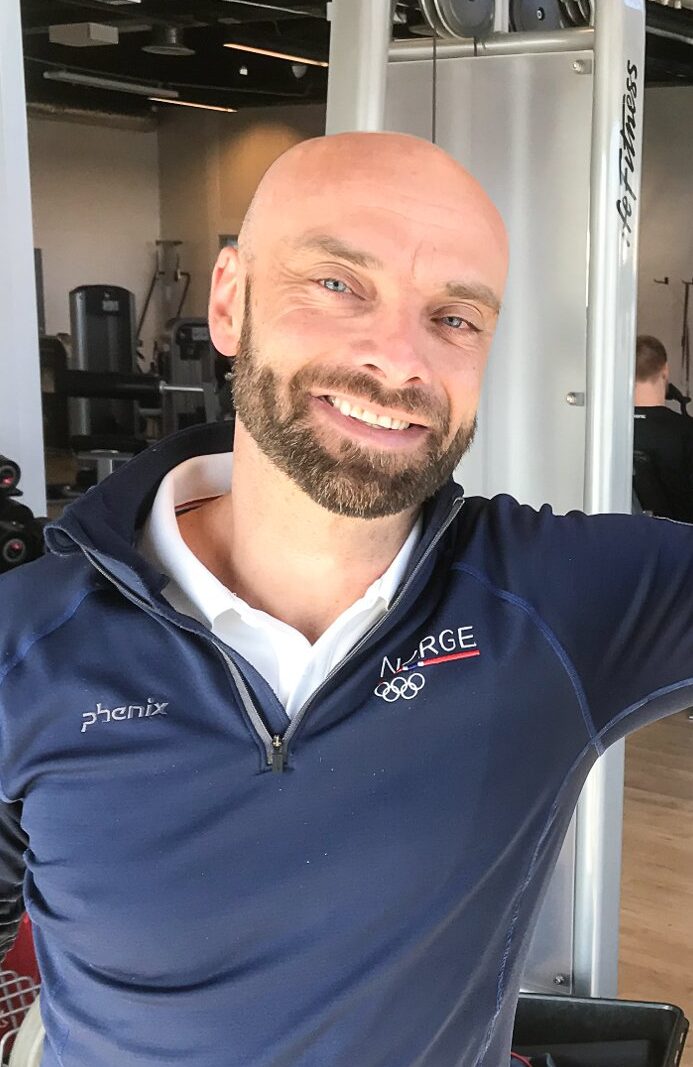
Paul Solberg
Paul André Solberg is a globally recognized sport scientist, coach, and educator, renowned for his expertise in throws, strength, and power development. A former elite javelin thrower with a personal best of 76.87 m, he has coached athletes at the highest international level and served as throws coach for Norway at multiple Olympic and Paralympic Games. He is the head throws coach and consultant at the Norwegian Olympic and Paralympic Committee and a key member of the Gøran Paulsen research lab. Solberg’s academic work includes over 40 publications, with influential research on force–velocity profiling, neuromuscular performance, and training methodologies for both elite athletes and Norwegian Special Forces. He holds a PhD in Sport Science and has contributed significantly to bridging applied coaching with cutting-edge research.
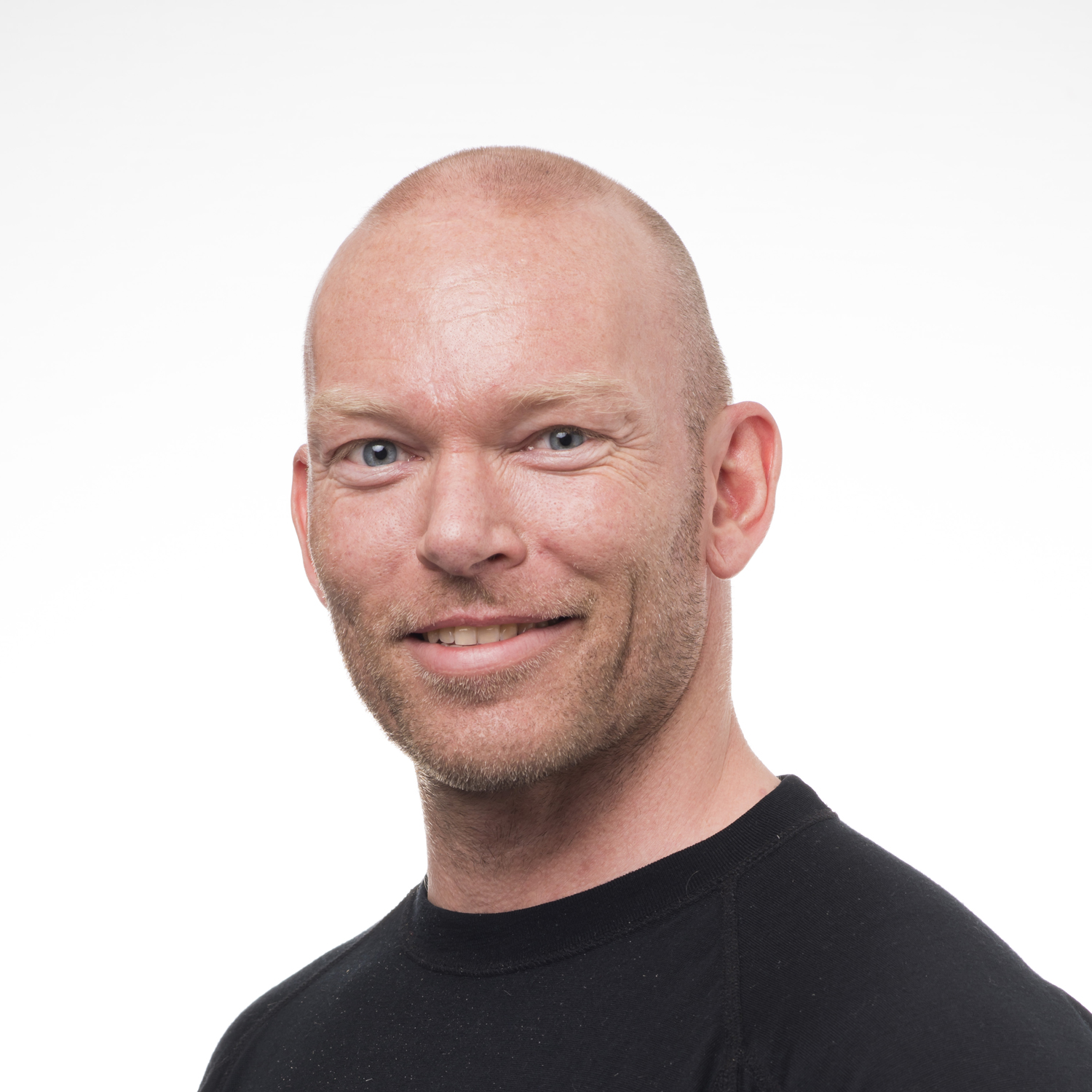
Tron Krosshaug
Tron Krosshaug is a professor at the Department of Sports Medicine at the Norwegian School of Sport Sciences and a senior researcher at the Oslo Sports Trauma Research Center since 2001. He completed his PhD in 2006 on video analysis of ACL injury mechanisms and has since specialized in biomechanics related to ACL, knee, ankle, and groin injuries. His work focuses on strength-training biomechanics, motion analysis, and developing innovative methods such as video and image-matching techniques to study injury mechanisms. He has led large prospective studies on ACL injury risks in elite handball and football players, while also supervising several PhD candidates in sports medicine. At NIH, he lectures on strength, endurance, and mobility training. Beyond academia, he is founder and CEO of Muscle Animations AS, which creates 3D educational apps for exercise and injury prevention. He has authored numerous peer-reviewed articles and contributes to international projects on sports injury prevention and rehabilitation.
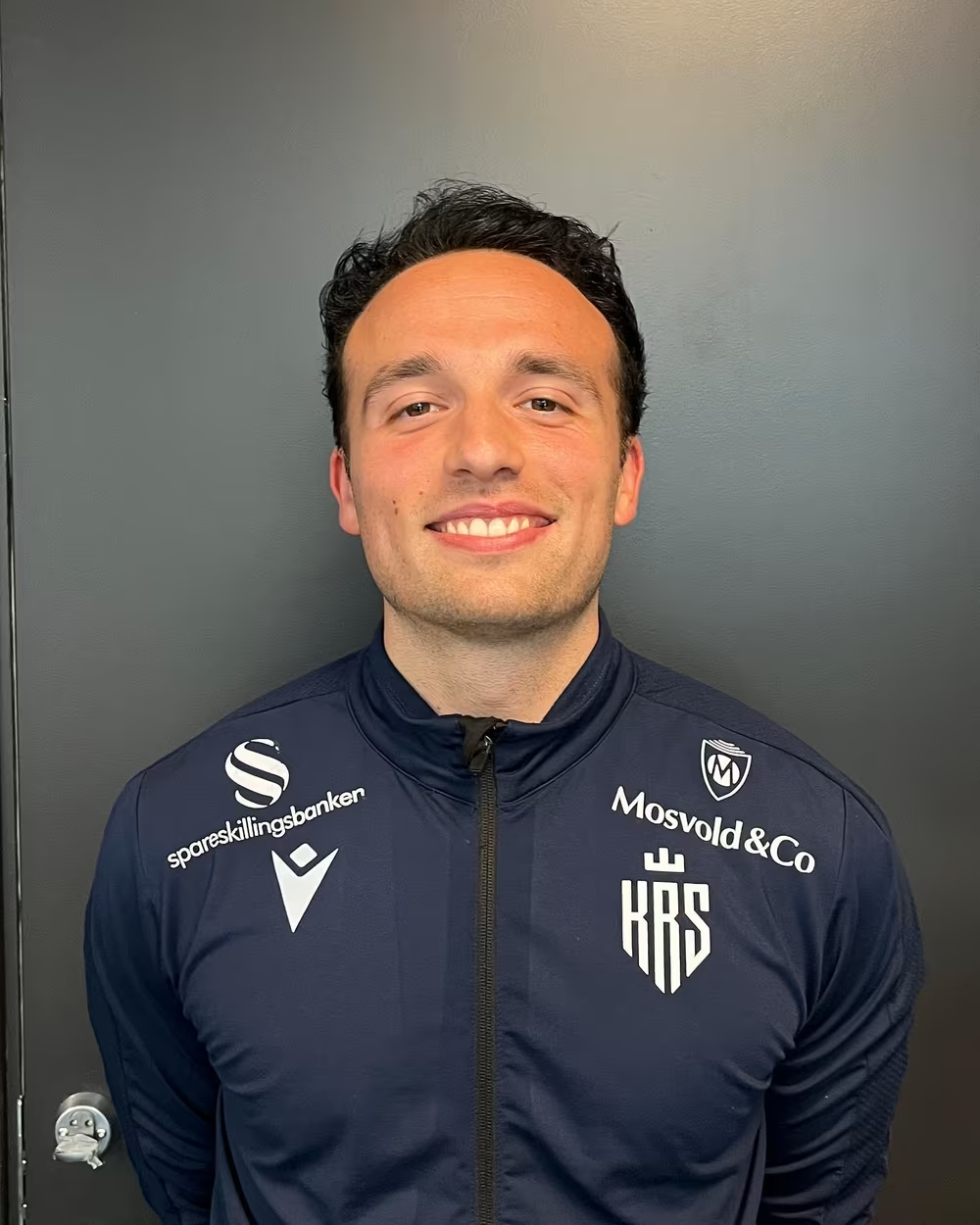
Emil Martinovic
Emil “Milo” Martinović is a 29-year-old performance coach from Norway, best known for his work under the brand Milocoaching. With a deep passion for human performance and athletic development, Milo has built a reputation for helping athletes optimize their physical and mental potential – from youth prospects to elite professionals.
He holds a Master’s degree in Sports Science from the University of Agder, and a Bachelor’s degree in Sports Coaching, specializing in performance training. His academic background is complemented by years of hands-on experience in high-performance sport environments.
Through his company Milocoaching, Milo currently works with several top-level teams and athletes. He serves as Performance Coach for Larvik Elite, Romerike Ravens Elite, Nordstrand men’s (1st division), Nordstrand women’s (2nd division), and HK Rygge. He has also contributed to athlete development at NTG Kongsvinger and collaborated with international projects such as the Luka Cindric Camp, working with some of Europe’s top handball players.

Teresa pellicer
Dr. Teresa Pellicer is the Biotechnology Manager at HealthTech BioActives (HTBA), a Spanish company specializing in natural flavonoids and active vitamin B₁₂.
She led a clinical study on MecobalActive®, a bioactive methylcobalamin, which showed enhanced physical performance and reduced fatigue in healthy amateur cyclists.
The study also reported faster cognitive response times compared to a placebo after just three days of supplementation.
Pellicer presented these findings at Vitafoods Europe 2025 in Barcelona.
She has a strong background in microbiology and bioprocesses, linked to the Institut Químic de Sarrià (IQS).
Her work focuses on natural, bioactive ingredients and sustainable biotechnology innovations.
She collaborates on research involving fermentation processes for vitamin B₁₂ production.
Pellicer is active in both scientific and industry circles, promoting evidence-based nutraceuticals.

Paul Solberg
Paul André Solberg is a globally recognized sport scientist, coach, and educator, renowned for his expertise in throws, strength, and power development. A former elite javelin thrower with a personal best of 76.87 m, he has coached athletes at the highest international level and served as throws coach for Norway at multiple Olympic and Paralympic Games. He is the head throws coach and consultant at the Norwegian Olympic and Paralympic Committee and a key member of the Gøran Paulsen research lab. Solberg’s academic work includes over 40 publications, with influential research on force–velocity profiling, neuromuscular performance, and training methodologies for both elite athletes and Norwegian Special Forces. He holds a PhD in Sport Science and has contributed significantly to bridging applied coaching with cutting-edge research.

Tron Krosshaug
Tron Krosshaug is a professor at the Department of Sports Medicine at the Norwegian School of Sport Sciences and a senior researcher at the Oslo Sports Trauma Research Center since 2001. He completed his PhD in 2006 on video analysis of ACL injury mechanisms and has since specialized in biomechanics related to ACL, knee, ankle, and groin injuries. His work focuses on strength-training biomechanics, motion analysis, and developing innovative methods such as video and image-matching techniques to study injury mechanisms. He has led large prospective studies on ACL injury risks in elite handball and football players, while also supervising several PhD candidates in sports medicine. At NIH, he lectures on strength, endurance, and mobility training. Beyond academia, he is founder and CEO of Muscle Animations AS, which creates 3D educational apps for exercise and injury prevention. He has authored numerous peer-reviewed articles and contributes to international projects on sports injury prevention and rehabilitation.
WORKSHOP speakers

Thue Kvorning
Thue Kvorning (TK), MSc, Ph.D. TK have been working as a S&C coach in several professional soccer, team handball and ice hockey clubs in Denmark from 2000 to 2009. From 2007 up until 2022, TK worked as a sport physiologist and S&C coach at Team Danmark, the Danish Olympic elite sport Association supporting more than 30 different sports disciplines; mostly Olympic and Paralympic disciplines. TKs area of expertise include, testing and evaluation of performance with special focus on explosive muscle strength, power and speed, development and optimization of recovery, training and competition strategies and designing and supervision of S&C programs.
TK is continuously involved in research, publishing and presenting on the performance enhancing effect of strength training, skeletal muscle hypertrophy mechanisms and endogenous and exogenous effects of testosterone. In this regard, TK has been an invited speaker at national and international conferences as well as involved as external lecturer and supervisor at various universities in Denmark. TK is currently working in the pharmaceutical business (Novo Nordisk).
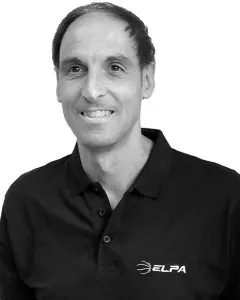
JULIO CALLEJA-GONZÁLEZ
Julio Calleja is a Full Professor at the University of the Basque Country with a Ph.D. in Physical Activity and Sports Sciences. He holds multiple master’s degrees in high-performance sports and sports science. Calleja has extensive experience as a physical trainer, working with elite athletes and national teams across various sports. He has served in significant roles, including as the physical trainer for the Spanish National Basketball Team and the Basque Rugby Federation, and has been involved in international projects such as the Croatian Football Federation at the 2014 FIFA World Cup and the Dominican Republic national basketball team in 2015.
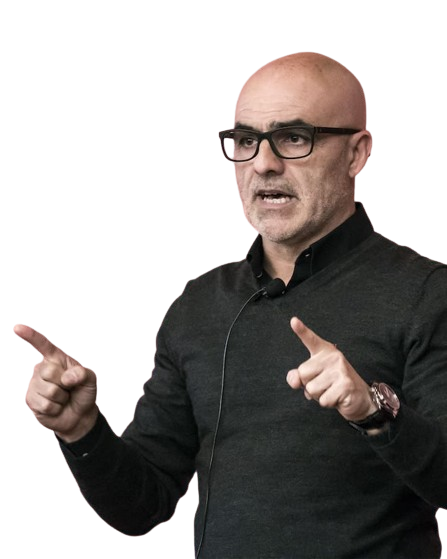
juanjo brau
Juanjo Brau is a licensed physiotherapist and sports rehabilitator from the University of Barcelona. He currently serves as a professor in the master’s programs for physiotherapy and sports rehabilitation at various prestigious institutions across Spain, including the Escola Universitària de Salut i Esport EUSES in Girona, the University of Valencia, the University of Málaga, UCAM Murcia, Escola Universitària de Fisioteràpia Gimbernat, and Universidad CEU Sevilla.
For 25 years, Brau was the head of physiotherapy and physical rehabilitation at FC Barcelona, where he was pivotal in treating and rehabilitating injured athletes actively on the field. His expertise and dedication have made him a leading figure in the field of physiotherapy and sports rehabilitation.
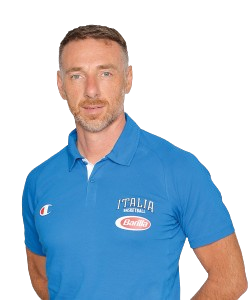
FRANCESCO CUZZOLIN
Francesco Cuzzolin is the first European to become the Head Strength and Conditioning Coach in the NBA with the Toronto Raptors. He has significantly contributed to European basketball, particularly with Benetton Treviso and Virtus Bologna, and has served as the head coach for the Russian National Team and the Italian Basketball Federation. Cuzzolin currently holds the position of Performance Director at Olimpia Armani Milano in the Euroleague. With a Ph.D. in physical exercise applied to industrial engineering, he was also the former Director of the Scientific Department at Technogym until 2019. Cuzzolin continues to share his expertise globally as a consultant and speaker, and serves on the Performance Advisory Board of the Euroleague Players Association (ELPA)
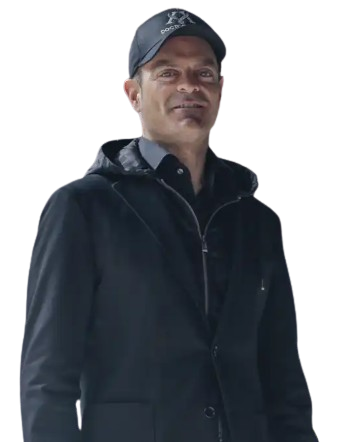
aldo martÍnez
Aldo Martínez has over 25 years of experience in sports science, focusing on fitness training, rehabilitation, and strength and conditioning. He has worked as a Physical Education and Sport teacher for the Ministry of Education & Culture and Sport in Spain and teaches in the Sports Physical Therapy Master’s program and the Personal Coach Course through NSCA-Spain. His approach is proactive and innovative, aiming to optimize performance in elite sports and health rehabilitation sectors.
Among its internationally recognized trained athletes: Ilia topuria (MMA world featherweight champion, UFC), José Quiles Brotons (Spanish representative at the Olympic Games in Paris 2024)…
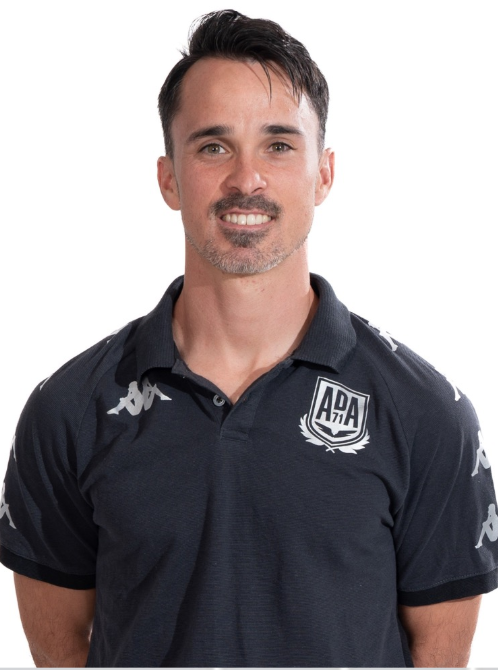
RAFAEL AARÓN
Rafael Aaron holds a Ph.D. student in Physical Activity and Sport Sciences and a Bachelor’s Degree in Physical Activity and Sport Sciences. He is certified as a Football Coach at both Level I (ANEF) and Level II (CENAFE). With extensive experience in sports physiotherapy, Rafael has served as a Physiotherapist for various teams under the Real Federacion Madrileña de Fútbol. He has also excelled as the Coordinator of Physiotherapy and Rehabilitation for Youth Football at A.D. Alcorcon. Rafael’s expertise extends to coaching and physical preparation, demonstrated through his roles as a Coach and Physical Trainer for various teams. Currently, continues to make a meaningful impact as a Rehabilitator for the First Team in the HYPERMOTION League, Second Division.
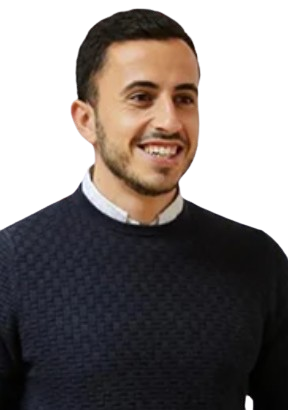
JULIÁN ALCáZAR
Julián Alcazar is an Associate Professor at the Faculty of Sport Sciences of Toledo, part of the University of Castilla-La Mancha in Ciudad Real, Spain. Holding a PhD in Sports Science, his areas of expertise include strength and conditioning, muscle function, body composition, neuromuscular physiology, aging, exercise physiology, muscle biology, physical fitness, and resistance training. Alcazar’s work primarily focuses on understanding and enhancing physical performance and health through various aspects of exercise science.
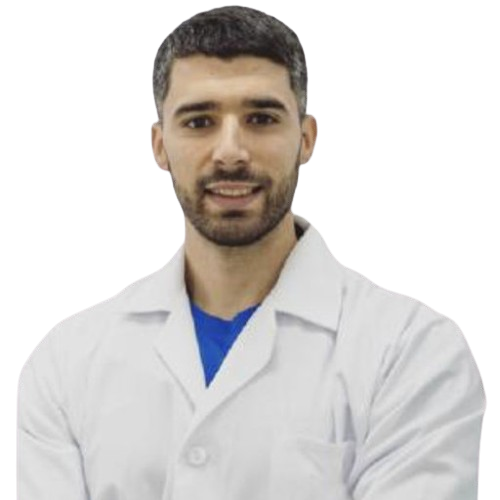
José Francisco López Gil
José Francisco López-Gil holds a Ph.D. in Physical Education from the Universidad de Murcia (Region of Murcia, Spain) and a Ph.D. in Sports Sciences from the Universidade Federal do Paraná (Curitiba, Brazil). He is currently working as a professor of Physical Education at the Universidad de Murcia. He is also employed by the Ayuntamiento de Archena, where he leads some projects focusing on the health of children and adolescents. His research aims to improve the knowledge about the factors which influence childhood obesity, on the basis of empirical results and, consequently, to contribute to greater physical fitness, physical activity and sleep duration, lower levels of sedentary behavior and better eating healthy habits in children and teenagers.
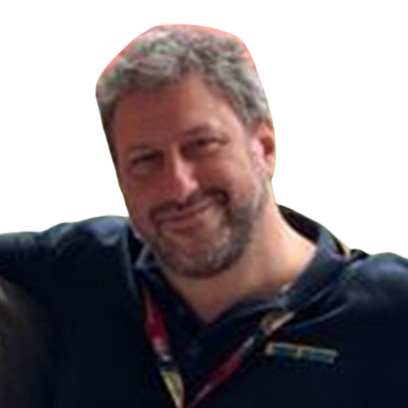
Marco Pozzo
CEO and Founder, SmartCoach Technologies (USA) & SmartCoach Europe (Sweden)
Marco Pozzo is an engineer with long term experience in design and development of hi-tech products for Sport Science and Exercise Physiology. Former researcher in Neuromuscular Engineering and Sports Physiology in prestigious institutions such as Politecnico di Torino and Karolinska Institutet, and fellow of the European Space Agency (ESA), Life Science Unit. Founder and CEO of SmartCoach Europe and SmartCoach Technologies, with a passion for technology and innovation.
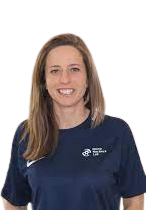
Anna OllÉ Llado
Anna is strongly interested in understanding the basis of biomechanics and motor control, which are the cornerstones of physical exercise and force analysis.
She is currently working on Neuromecánica Lab (NM-L). It is the pioneer company in Spain in the education professionals applied to injury prevention and rehabilitation & physical preparation through a neuroscience and biomechanics point of view.
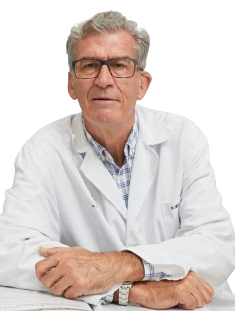
Nicolás Terrados
Doctor of Medicine and Surgery Professor at the University of Oviedo Master’s in High Performance Sports and specialist in Sports Medicine. Author of hundreds of publications on the subject Member of the medical commission of the Spanish Cycling Federation. Physician for the Basketball World Championship Physician for the Spanish Olympic Committee. Chief Medical Officer for professional cycling teams. Dr. Terrados has also received numerous awards and accolades, both nationally and internationally, including the First National Prize in Sports Medicine Research.
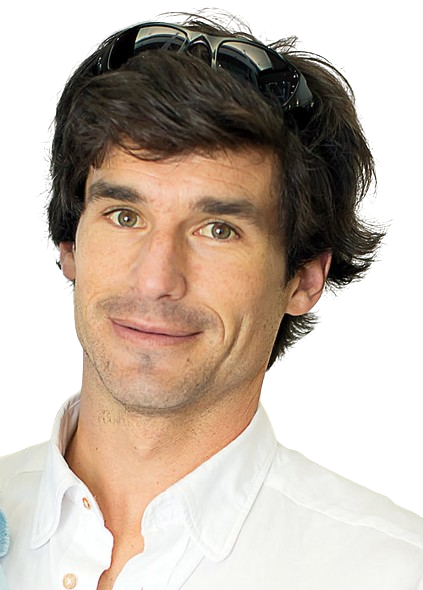
Ramón Lago Ruiloba
In terms of education, Eduardo completed a doctoral program in specialized didactic research at the University of Vigo from 2008 to 2009. Prior to that, he obtained his Master’s degree in High Performance Sports from the Autonomous University of Madrid in 2008, and his Bachelor’s degree in Physical Activity and Sport Sciences from the University of Vigo from 2001 to 2006.
Currently, Eduardo Ramón holds the position of Technical Director at RSP Inercial Performance since February 2015.
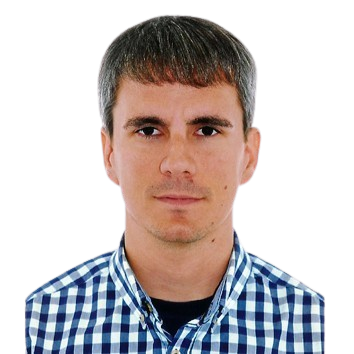
Juan Ignacio Cacho
Juan Ignacio Cacho is a Scientific and Regulatory Affairs en HealthTech BioActives – company which have been an expert in the clean production of naturally sourced ingredients to make a measurable impact on the well-being of people and animals.
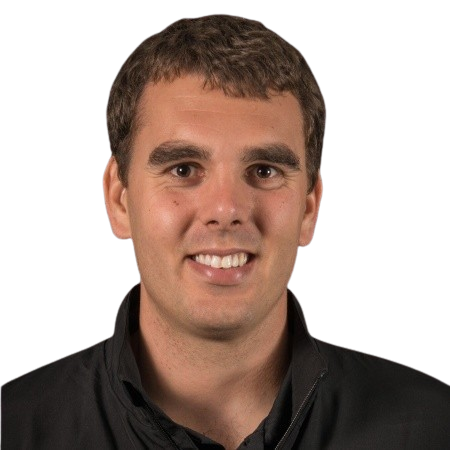
Steve Barrett
Vice President of Sports Performance at Playermaker
Playermaker is a company which helps athletes to improve sports performance and provides coaching enhancement solutions
Former Senior Science Specialist at Hull City FC.
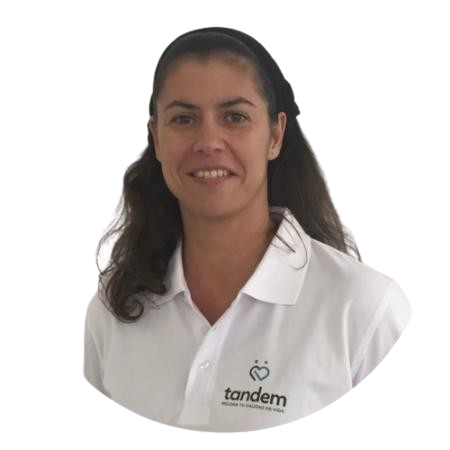
Elena Santana Sosa
Elena Santana Sosa is a Doctor of Physical Activity and Health, and a Technical Director at Gimnasio Tándem AFYS.
She also was hired by the Foundation Aladina to supervise personalized training sessions for all minors hospitalized at the Niño Jesús Hospital. Since 2012, when the initiative was launched, more than 300 workouts have been carried out per month.
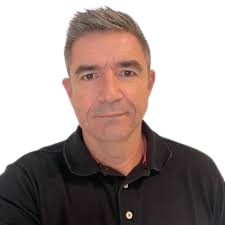
Manuel López Segovia
Graduate from the Polytechnic University of Madrid (INEF) and Dr in Sports Sciences from the University Pablo de Olavide with a Master in High Performance by the Spanish Olympic Committee.
He has extensive experience in national and foreign professional soccer teams. He is a university professor and professor of the Spanish Football Federation.
His lines of research are based on Strength Training in the soccer player and the Control of the training Load Control.
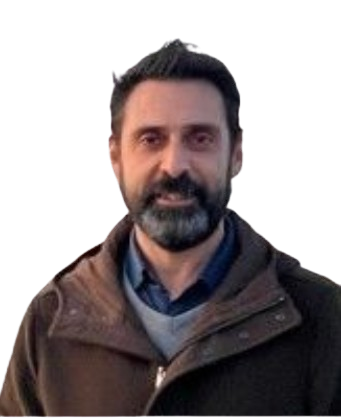
Javier escobar
CEO of OVERGENES.
Overgenes is a company whose main goal is to put at the service of people the latest advances in health prevention with the most innovative genetic products on the market.
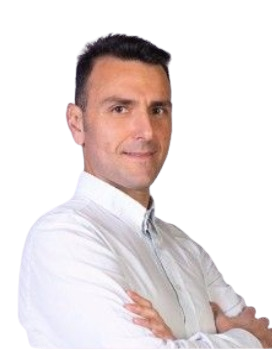
francisco javier martÍnez-noguera
Doctor in Sports Sciences, Sports Nutrition.
Sports Nutritionist Specialist in High Performance in CIARD and Physiotherapy Clinic Jorge Lledo.
Research Assistant at Center for Research in High Performance Sports (CIARD-UCAM)
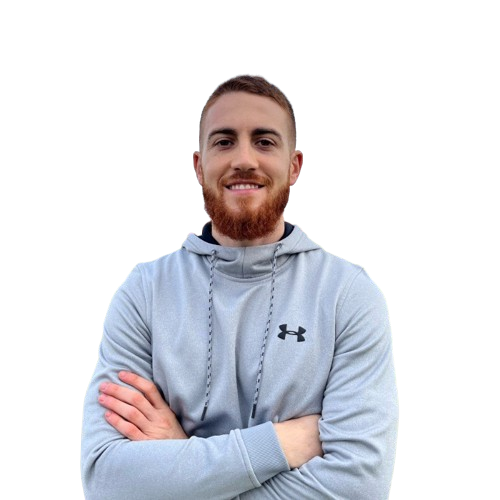
antonio expÓsito
Physical trainer of professional and Olympic athletes, both in track & field, as well as in collective sports and combat sports. Previously, physical trainer of basketball and soccer teams, in youth and senior teams.
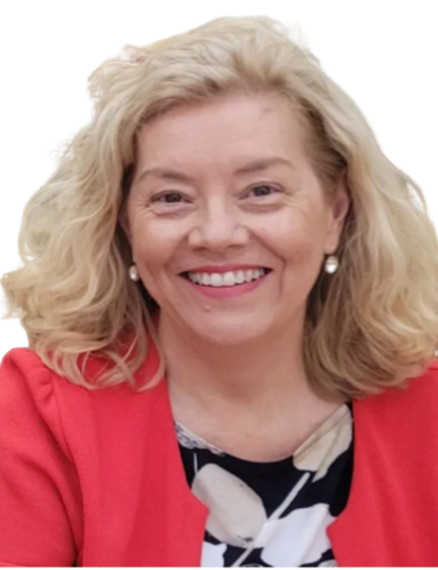
Marcela González-Gross
Doctor in Pharmacy and Master in Nutrition from the Complutense University of Madrid, with postdoctoral research experience at the University of Granada, CSIC, and the University of Bonn. Since 2004, she has been at the Polytechnic University of Madrid, becoming a Full Professor in 2012 and leading the ImFINE research group. She is President of the Spanish Nutrition Society and Scientific Manager of Exercise is Medicine® Spain. Her research focuses on nutrition, exercise, and health, authoring over 400 publications and supervising numerous theses. She has received multiple awards, including the 2016 National Research Award in Sports Medicine.
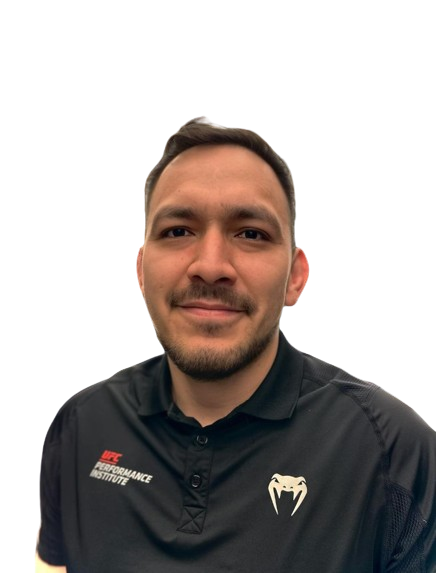
glenn castro
Glenn Castro is the Performance Nutrition Manager at UFC Performance Institute since September 2023, previously serving as Performance Nutrition Coordinator.
He holds a Bachelor’s in Nutrition and Dietetics from the College of Saint Benedict (2017) and a Nutritional Science Certificate from Pepperdine University (2020).
Castro has experience with MMA athletes through the Gatorade Sports Nutrition Immersion Program and has worked as a clinical dietitian at various hospitals.
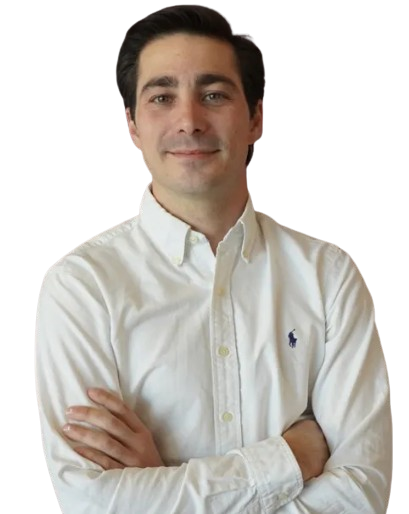
AlejÁndro Javaloyes
Researcher and professor at the Miguel Hernandez university of Elche in the sports research center.
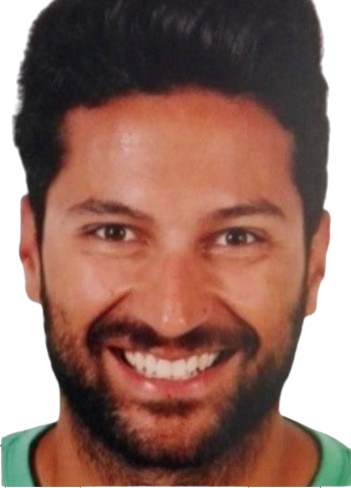
ÁNGEL I. FERNÁNDEZ
Degree in Physical Activity and Sport Sciences and Master in Physical Activity and Sport Research. Member of the GENUD research group. Author of multiple articles in scientific journals and communications in congresses, highlighting 12 articles in JCR journals. At the end of 2018 Angel received an FPI grant at the University of Zaragoza to develop his PhD studies and participate in the project “Evolution of physical fitness, body composition and frailty in people over 65 years old. Mediation of vitamin D and effects of an exercise program”. He is currently an associate professor at the University of Zaragoza.
DOwnload the programme here
*The registration includes a name tag, a ticket to Friday’s dinner and to the welcome reception at the Town Hall if this has been ordered. IMPORTANT, please bring your phone so you can take a picture of your ticket for the welcome reception.
We encourage you to come in due time and specific Wednesday morning can be crowdy with many registrations just before the conference starts.
TUESDAY OCTOBER 07th, 2025
16:00 -18:00
Registration
WEDNESDAY OCTOBER 08th, 2025
08:00
Registration
08:45- 09:00
Opening Ceremony
Location: AUDITORIUM
09:00-10:30
Symp 1: Injuries and injury prevention in football
Chair: Grethe Myklebust (NOR)
Location: AUDITORIUM
Unlock Success: 7 Game-Changing Strategies to Maximize Player Availability in Champions League Football
Speaker: Jan Ekstrand (SWE)
Better safe than sorry. How to mitigate injuries in football
Speaker: Thor Einar Andersen (NOR)
10:30 - 11:00
COFFE BREAK
11:00 - 12:30
Symp 2: Training load and adaptations in team sports
Chair: Thor Einar Andersen (NOR)
Location: AUDITORIUM
Training load: implications for performance and health, current limitations, and possibilities
Speaker: Aaron Coutts (AUS)
Training Load Monitoring: Theoretical Basis and Methodology.
Speaker: Live S. Luteberget
13:00 - 14:00
LUNCH
14:00 -15:00
Poster Session 1
15:00 -16:00
Oral Session 1
16:00 - 17:30
Workshop: Strength Training in Team Sports
(Free access until the capacity is complete)
Speaker: Francesco Cuzzolin (ITA)
Location: Utsikt
16:00 - 17:30
Workshop sponsored by: VALD
Strength Training in Handball – from Programming to Testing
Speaker: Emil Martinovic (NOR)
Location: CU1.2
16:00 - 17:30
Workshop: Beyond the Platform: Harnessing the Clean & Jerk and Snatch to Ignite Explosive Power in Every Sport
(Free access until the capacity is complete)
Speaker: Gøran Paulsen (NOR) and Paul Solberg (NOR)
Location: Olympiatoppen
THURSDAY OCTOBER 9th, 2025
08:00- 08:30
Registration
08:30-10:00
Symp 3: Strength training for endurance performance
Chair: Per Aagaard (DEN)
Location: AUDITORIUM
Effects of strength training on endurance performance in females
Speaker: Ritva Mikkonen (FIN)
Strength training in cycling: from science to practice
Speaker: Bent Rønnestad (NOR)
10:00 - 11:30
Symp 4: A critical approach to force-velocity profiles in training and testing
Chair: Anthony Blazevich (AUS)
Location: AUDITORIUM
Force-velocity testing of athletes, from theory to practice
Speaker: Gøran Paulsen (NOR)
Interpretation of force-velocity profiles and changes therein
Speaker: Maarten F. Bobbert (NED)
11:30 - 12:00
COFFE BREAK
12:00 - 13:00
Poster Session 2
13:00 - 14:00
LUNCH
14:00 -15:00
Oral Session 2
15:00 - 16:30
Symp 5: Biomechanical and physiological trade-offs in sprint and endurance performance:
Chair: Truls Raastad (NOR)
Location: AUDITORIUM
How athletes move: trade-offs in anatomical and physiological design
Speaker: Anthony Blazevich (AUS)
Influence of a plantarflexor resistance training intervention on running economy and lower limb kinematics and kinetics in female distance runners
Speaker: Hannah Rice (NOR)
16:30 - 16:40
BREAK
16:40 - 18:00
Workshop: Speed Training in Team Sports
(Free access until the capacity is complete)
Speaker: Ian Jeffreys (USA)
Location: Hall, building G, ground floor
16:40 - 17:25
Workshop sponsored by: HTBA
"MecobalActive®. A new dimension in cognitive and physical performance"
(Free access until the capacity is complete)
Speaker: Teresa Pellicer (ESP)
Location: Utsikt
16:40 - 18:00
Workshop: Understanding muscle loading in strength training exercises - Let's debunk myths!
(Free access until the capacity is complete)
Speaker: Tron Krosshaug (NOR)
Location: Auditorium
FRIDAY OCTOBER 10th, 2024
08:00- 08:30
Registration
08:30-10:00
Symp 6: Training to counteract declines in physical fitness in aging and disease
Chair: Eduardo Cadore (BRA)
Location: AUDITORIUM
Exercise in cancer treatment and rehab
Speaker: Prue Cormie (AUS)
Global Consensus on Exercise Strategies to Counteract Age-Related Fitness Declines
Speaker: Mikel Izquierdo (SPA)
10:00-11:30
Symp 7: Effects of BFR training in sports and clinical populations
Chair: Thue Kvorning (DEN)
Location: AUDITORIUM
BFR applications and effects in athletes, local and remote adaptive mechanisms
Speaker: Mathias Wernbom (SWE)
Use of BFR training in musculoskeletal rehabilitation and injury prevention
Speaker: Per Aagaard (DEN)
11:30 - 12:00
COFFE BREAK
12:00 -13:00
Oral Session 3
13:00 - 14:00
LUNCH
14:00-15:30
Symp 8: The effect of menstrual cycle and oral contraceptives for training adaptations in women
Chair: Olivier Seynnes (NOR)
Location: AUDITORIUM
The effects of menstrual cycle phase on athletic performance; what does this mean and what does the research evidence show?
Speaker: Kirsty Elliott-Sale (GBR)
Oral Contraceptives and Their Potential Impact on Training Adaptations: What Do We Know?
Speaker: Mette Hansen (DEN)
15:30 - 17:00
Workshop: Strength Training in Older People
(Free access until the capacity is complete)
Speaker: Eduardo Cadore (BRA)
Location: Training Center, F Basement
15:30 - 17:00
Workshop: Strength Training in Combat Sports
(Free access until the capacity is complete)
Speaker: Duncan French (ENG) & Melissa Prieto (COL)
Location: Hall, building G, ground floor
17:00 - 18:30
CLOSING & AWARDS CEREMONY
Location: AUDITORIUM
18:30 - 23:00
Dinner
Location: Canteen Norwegian School of Sport Sciences

HSI-Prevent Scientific Session (full day)
map of the conference venue
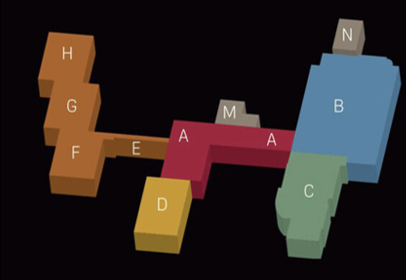
A: RECEPTION
C: AUDITORIUM AND CLASS ROOMS
- Invited Speakers
- Aud Topp and Aud Bredde, oral presentations
- Speakers ready room
- Coffee and fruits
F: Basement Training Center
G: Hall
- Poster Sessions
- Lunch (Thursday)
- coffee and fruits
M: Cantine
- Dinner Friday evening
- Lunch (Wednesday and Friday)
Meals, Social Events, and Practical Information
Lunch and coffee:
Coffee will be available outside the auditorium and in the exhibitor area.
Lunch, Wednesday and Friday will be served in the canteen, 13:00-14:00
Lunch, Thursday will be served in connection to the poster session in the Hall, 13:00-14:00
Welcome reception at Oslo town hall:
Venue: Rådhusplassen 1,
5 min walk from the T-bane station “Nationaltheatret”
Program:
18:00: Doors open and there is a cloakroom downstairs. Guests wait in the Town Hall.
18:30: The bell rings, guests are shown up to the 2nd floor.
18:30: Mayor welcomes
18:45: Food and drinks served, mingling (non-alcoholic serving, light food)
19:15: Guided tour in the town hall
20:00: Event ends
Ticket and security:
Please have your ticket ready on the phone when you arrive. The ticket will be checked and only participants on the registration list for the welcome reception get access.
After the ticket control, all guests proceed to an obligatory security check (airport security).
Door closes 18:20.
Friday Dinner:
The dinner starts at 18:30 in the NIH canteen at the conference venue. There will be served tapas plus dessert. Wine, beers and soft drinks will be available at the tables and at a bar.
The dinner will finish at 23:00.
presidents
*Honorary President
Klavs Madsen
(NIH, NOR)
*Congress President
Pedro E. Alcaraz
(Catholic University of Murcia, ESP)
Organizing Committee
*President
Klavs Madsen
(NIH, NOR)
*Technical Secretary
Beate M Kristensen
(NIH, NOR)
Truls Raastad
(NIH, NOR)
Hannah Rice
(Catholic University of Murcia, ESP)
Pedro E. Alcaraz
(Catholic University of Murcia, ESP)
Thue Kvorning
(University of Southern, DEN)
Scientific Committee
*President
Anthony J. Blazevich
(ECU, AUS)
Truls Raastad
(NIH, NOR)
*Secretary
Gøran Paulsen
(NIH, NOR)
Live Luteberget
(NIH, NOR)
Hannah Rice
(NIH, NOR)
Olivier Seynnes
(NIH, NOR)
Tormod Skogstad Nielsen
(NIH, NOR)
Elena Marín Cascales
(Catholic University of Murcia, ESP)
Tomás T. Freitas
(Catholic University of Murcia, ESP)
Caroline Pietta Dias
(Universidade Federal do Rio Grande do Sul, BRA)
Pedro E. Alcaraz
(Catholic University of Murcia, ESP)
Per Aagaard
(University of Southern, DEN)
Jens Bojsen-Møller
(NIH, NOR)
Thue Kvorning
(University of Southern, DEN)
Kostas Spyrou
(Catholic University of Murcia, ESP)
Irina Zelenkova
(RUS)
Eduardo L. Cadore
(Universidade Federal do Rio Grande do Sul, BRA)
Julio Calleja González
(UPV/EHU, ESP)
abstracts
The Scientific Committee of the 8 th Annual Conference of the Strength and
Conditioning Society (SCS) invites all participants to submit scientific
communications.
The deadline for the submission of scientific abstracts is July 1st, 2025
SCIENTIFIC LINES
- Strength and conditioning in team-sports.
- Strength, power and speed training.
- Neuromuscular basis of strength and conditioning.
- Strength and Conditioning in the different ages of life.
- Injury prevention and return-to-play.
- Biomechanics and motion analysis.
- Exercise physiology.
- Biochemistry and molecular biology of exercise.
- Clinical exercise physiology: exercise and health.
- Training and testing.
ABSTRACT SUBMISSION GUIDELINES
➢ Language: English or Spanish, but only those written in English will be
published in Sports Journal,
➢ Maximum Length: 400 words as indicated in the Sports model document.
➢ Maximum number of references: 4 bibliographic references as indicated in the
Sports model document. Abstracts NOT complying with this requirement will NOT
BE taken into consideration.
➢ Each presenting or submitting author may submit no more than 2 abstracts.
➢ Abstract must be submitted as text only documents (no tabs, images or graphics
allowed).
HOW TO PROCEED
➢ Carefully read the requirements and conference topics.
➢ Download the abstract template (follow the standard Sports template – download the document from the SCS website).
➢ Insert your abstract text, as required.
➢ Fill-out the submission form with your information as well as including that of
the co-authors. You will need to identify who will be the “presenting author”,
which will be underlined in the program.
➢ Select one of the proposed topic areas.
➢ Select the type of presentation (poster or oral communication).
➢ Select if you would like your abstract to be evaluated for one of the awards (SCS
Young Investigator (YIA), SCS Applied Science Awards (ASA). See below for more
detail.
➢ Upload your abstract in the selected field and finalize the procedure.
➢ After submission you will receive a confirmation email with username and
password that you may use to review your submission as well as to modify it
within the deadline. Once the deadline has passed, abstracts can no longer be
modified by the authors.
➢ Once your abstract is evaluated, you will receive confirmation by email.
➢ To be granted access to the Conference and the Abstract Publication in the
Official Journal of the SCS, Sports Journal, you will need to finalize your registration
by August 15 th , and it should be in English language.
Instructions for invited speakers, oral and poster presentations are available on the webpage and have been send by mail to all presenters. If you have any questions regarding the format and how to upload your presentation, please mail to scs2025@nih.no
Oral presentations and locations:
Each presentation will take 10 min and there will be time to a few questions within 10 min.
Room 1: Auditorium (building C, basement)
Room 2: “Innsikt” (building A left part, down the stairs)
Room 3: Aud Bredde
Room 4: Aud Topp
Poster presentations and location:
Each presentation will take 5 min followed by 5 min with questions and discussion.
Location: Hall (building G)
SPORTS SPECIAL ISSUE
abstract submission
awards
SCS Young Investigator Award Requirements
- The first author (presenter) must be 30 years of age or less.
- For YIA presentation, English language is mandatory.
- Candidates will be evaluated on creativity, effort, attention to scientific detail, and presentation skills during the poster sessions.
- Eighteen semi-finalists will present their works in an oral communication session for 8 minutes on the Wednesday (you will need to make a short Powerpoint presentation for the oral communication session). All YIA candidates that do not meet the minimum criteria will present their abstracts as poster.
- The SCS Awards Committee will take into consideration the similarity between the submitted abstract and the oral communication presented.
- Three finalists will present their works in an oral communication session for 8 minutes on Friday. This election will be done on Thursday by the SCS Awards Committee based on the quality of the oral communications presented on Wednesday.
SCS Applied Science Award Requirements
- Candidates will be evaluated on creativity, effort, and applicability to sport, coaches, or athletes.
- For ASA presentation, English language is mandatory.
- Eighteen semi-finalists will present their works in an oral communication session for 8 minutes on Thursday (you will need to make a short Powerpoint presentation for the oral communication session). All ASA candidates that do not meet the minimum criteria will present their abstracts as poster.
- The SCS Awards Committee will take into consideration the similarity between the submitted abstract and the poster presentation.
- Three finalists will present theirs works in an oral communication session for 8 minutes on Friday. This election will be done on Thursday by the SCS Awards Committee based on the quality of the poster presentations by the SCS Awards Committee.
Notification of acceptance or non-acceptance will be given before 31st July.
The first week of September it will be announced if the award nominees have been classified as semifinalists for oral communication or not. If not classified, the abstract will be presented as a poster.
Winners will be presented during the Award Ceremony and receive an award certification, free registration to the next SCS Meeting, and free 1-year SCS Membership. Enquiries can be sent to: research@scs.academy
SCS Emerging Strength and Conditioning Coach
*Deadline to apply is August 31st
Criteria for the assessment of the Emerging Strength and Conditioning Coach of the Year:
First
- Justifying report (1 to 50 points):
The most important thing is that the candidate demonstrates the activity he/she carries out. He/she must show us what he/she does. In addition, this would be very important to be able to demonstrate at the conference why we have chosen this candidate. For this, the candidate should be able to send us a document, presentation, or dossier (5 pages max) containing a justification, pictures, or videos in which this athlete performs those tasks that deserve recognition. The items of this report would be:
- Position held (1 to 10 points).
- Brief description of the sport and/or modality. Justification of the physical qualities required for performance. Scientific basis (1 to 10 points).
- Methods of work/development of these qualities (1 to 20 points):
Activities, materials, tools, volume, periodization, level of originality…).
- Methods of performance evaluation and/or load control (1 to 10 points).
Second
- Achievements (10 to 30 points):
The candidate must provide evidence of the positions/achievements achieved by his/her athletes in national or international competitions. In other words, the candidate must demonstrate that apart from training methods that deserve recognition, these produce relevant results (National level: From 1 to 10 points; Continental level: From 11 to 20 points; World level or Olympic Games: From 21 to 30 points).
Third
- Relevance of the modality (From 1 to 20 points):
This section is intended for the less practiced/known modalities or those with fewer resources or media coverage to obtain compensation in the score. Therefore, less practiced/known sports would get a higher score. Scoring will be provided based on the following ranking: https://www.rookieroad.com/sports-by-country-0319236/.
All SCS coaches who want to participate should send an email with all the information to: events@scs.academy
Only for coaches aged 30 years or less.
Winners will be presented during the Award Ceremony and will receive an award certification, free registration to the next SCS Meeting, and a free 1-year SCS Membership.
Enquiries can be sent to: research@scs.academy
sponsor | PARTNERS
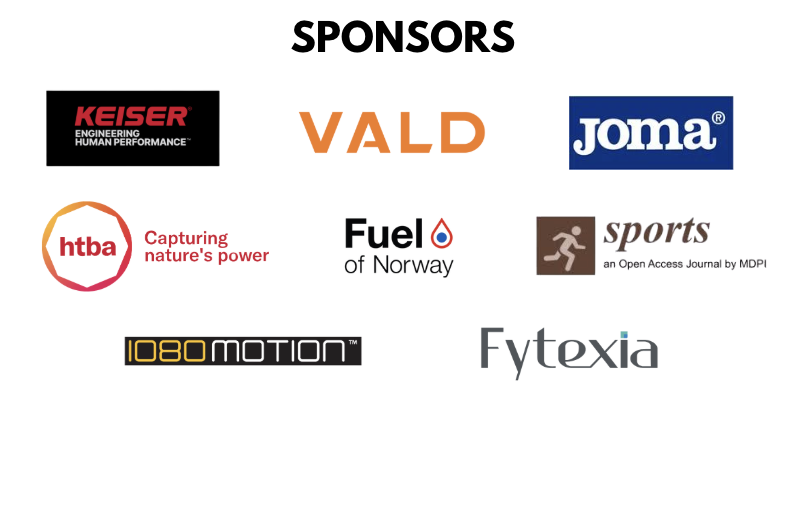
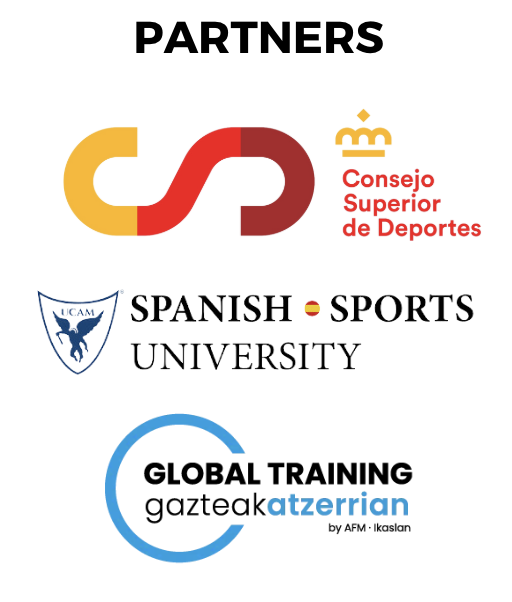
Strength & Conditioning Society | Plaza Circular, 8, Apdo. 2157, CP 30.008, Murcia, SPAIN | Fiscal Code G10879781

